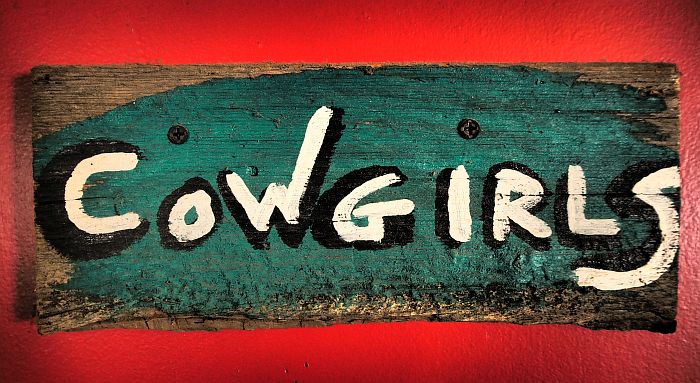
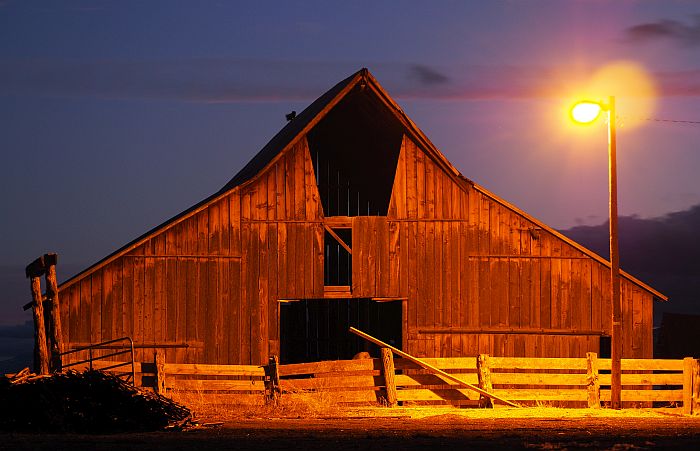
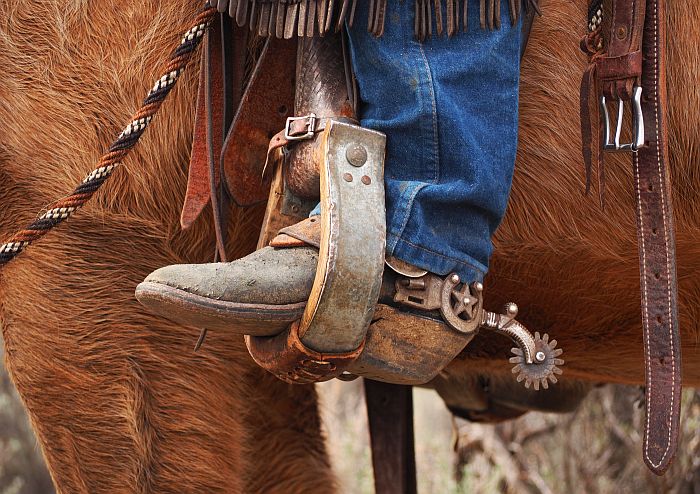
Who or what are Americans really?
This question has occupied me now for months. The only answer I have, however, is very limited, because Americans are as different and as divided in their way of thinking as you can possibly imagine.
The conservatives live alongside the liberals – cowboys, vegans, junk food lovers, sport jocks and obese people; there are also those who idolize their country but only experience the world from LA to NY while others are even ashamed for their country.
I met so many different people that I can honestly say there is no such thing as the typical American.
Actually, one could now think it is almost like in any other country, but I find it more extreme in the USA than anywhere else in the world. Maybe because I can understand the language.
There are things that I see as positive and other things that don’t please me at all. I’ll say more about this later in this blog entry.
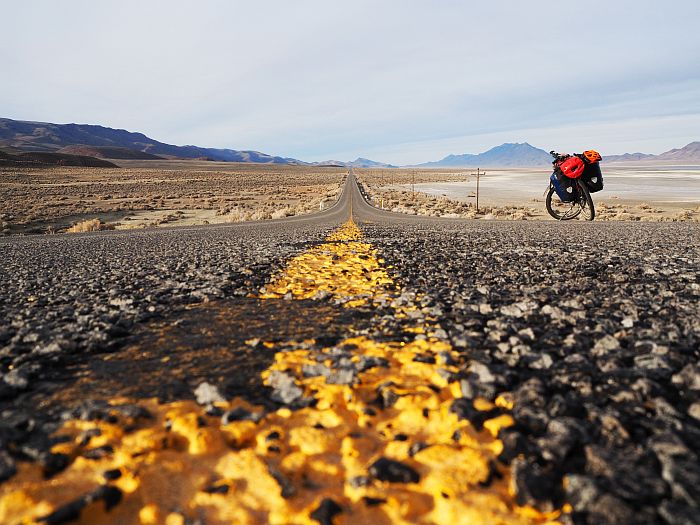
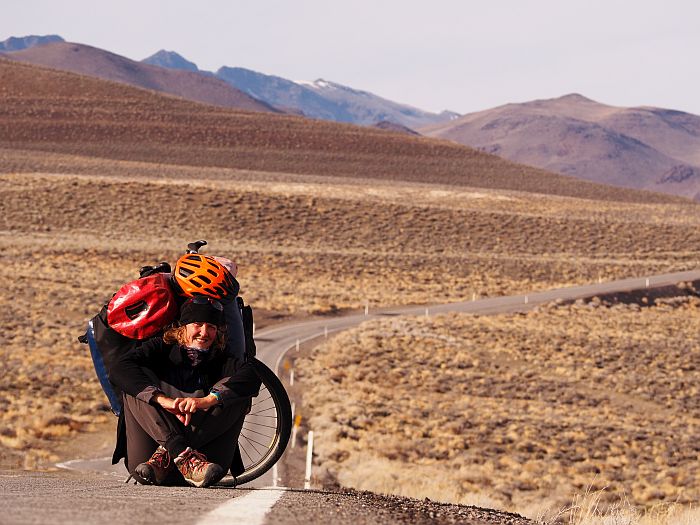
On the way to the north I chose again to cycle through the remote corners of the land. As always, the beauty of the landscape was breathtaking. The western part of the United States was like a postcard idyll every day, and I enjoyed every minute to the fullest.
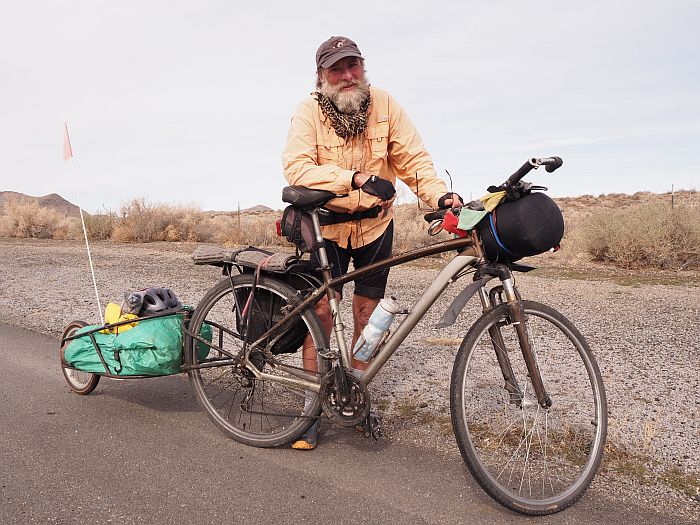
David, an American who already had a 22 year long cycle tour behind him, rolled suddenly towards me. Feeling of joy! He was the third cycle tourist I had met in the US. As always, such encounters are something special.
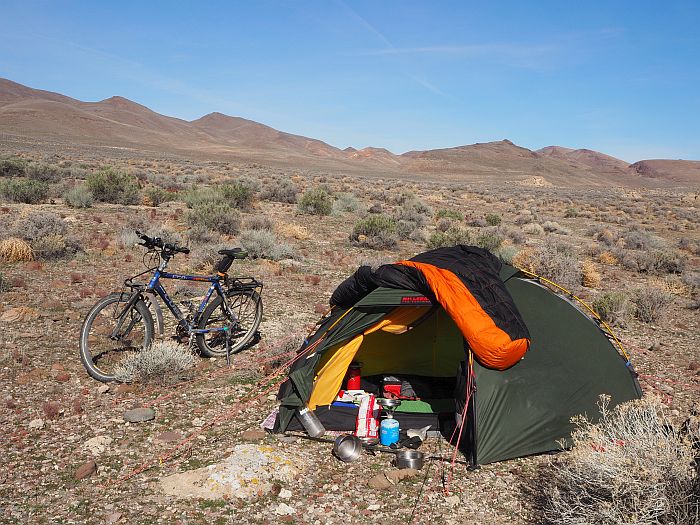
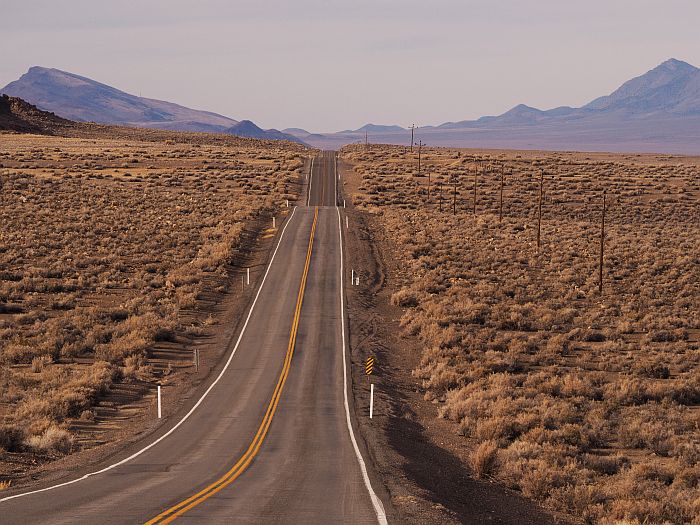
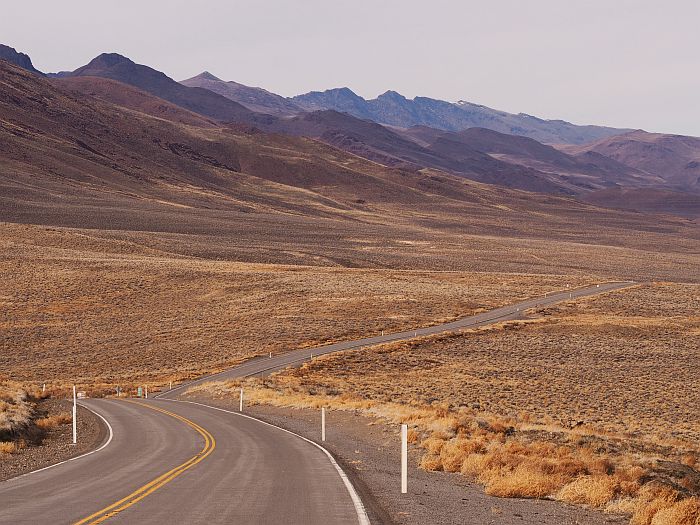
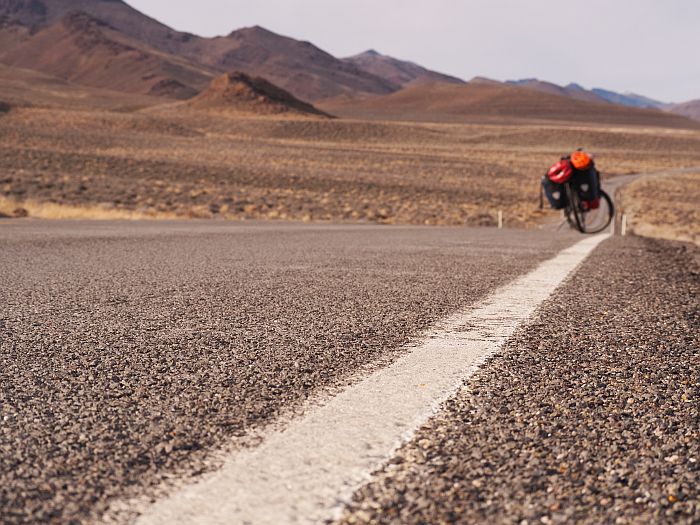
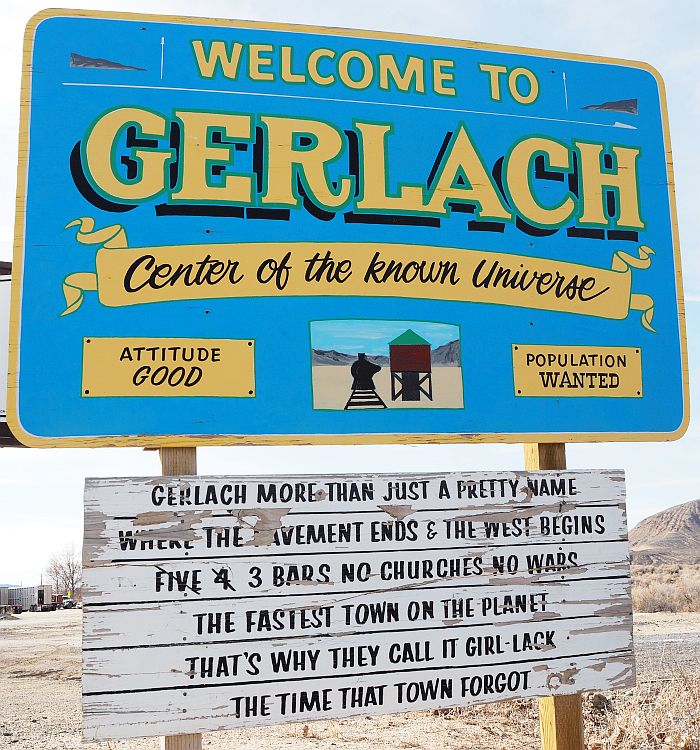
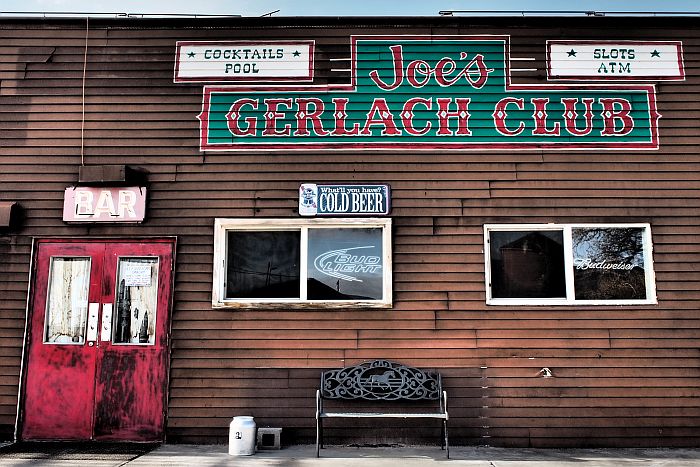
In Gerlach, still in Nevada, the people in the village pub already knew that I was on the way to them, and within a short period of time I had gathered a lot of information about my further journey northward. From the options available, I selected the most out-of-the-way trail I could find.
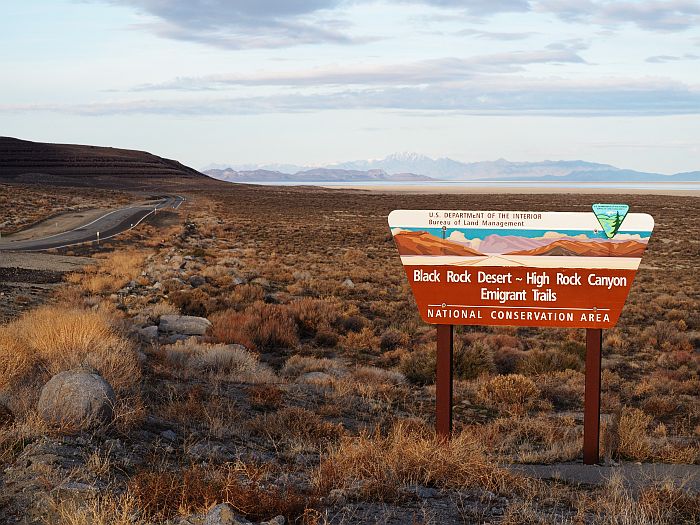
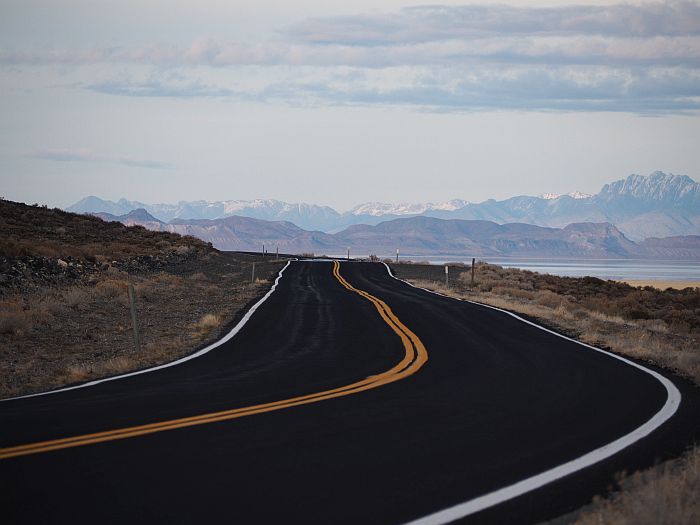
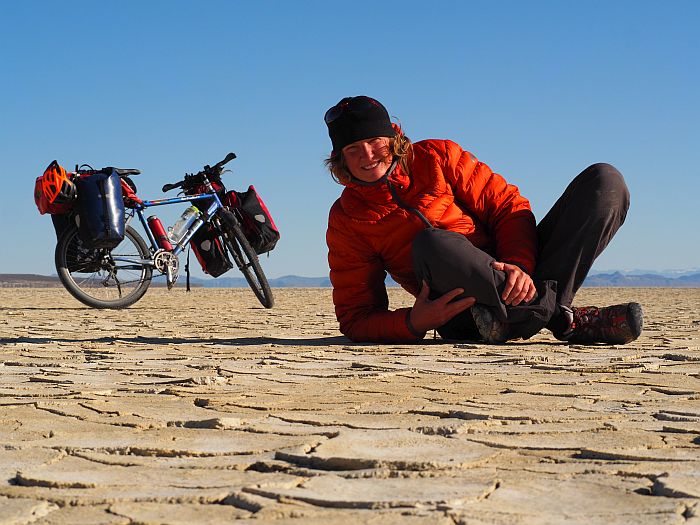
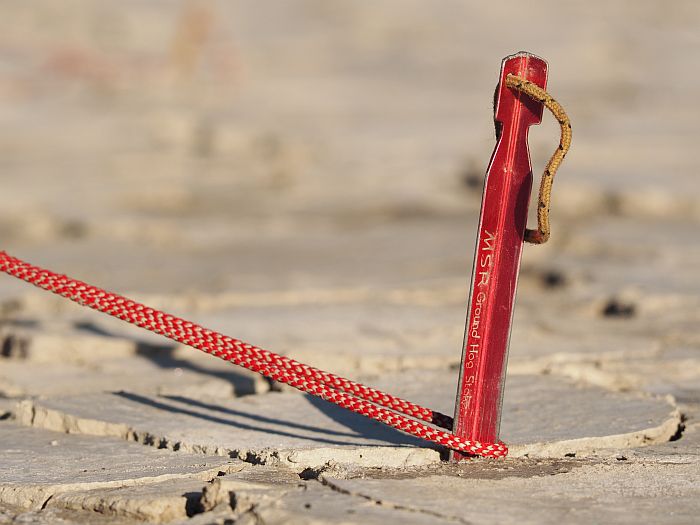
The Playa – a dry lake in the middle of a mountainous desert landscape. I couldn’t believe how beautiful the area was. My mood was better than ever – and the campsite was one of the best on my trip so far.
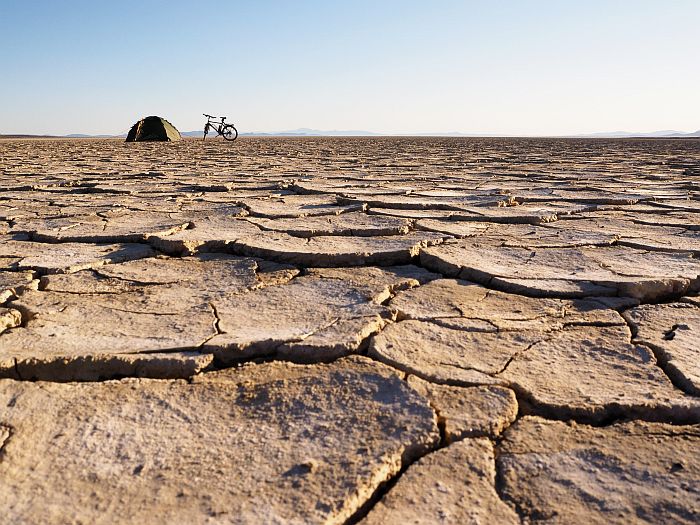
The trail continued on gravel. Desert and no one was in sight. The road was good for cycling; the wind was coming from the right direction, so I made good headway.
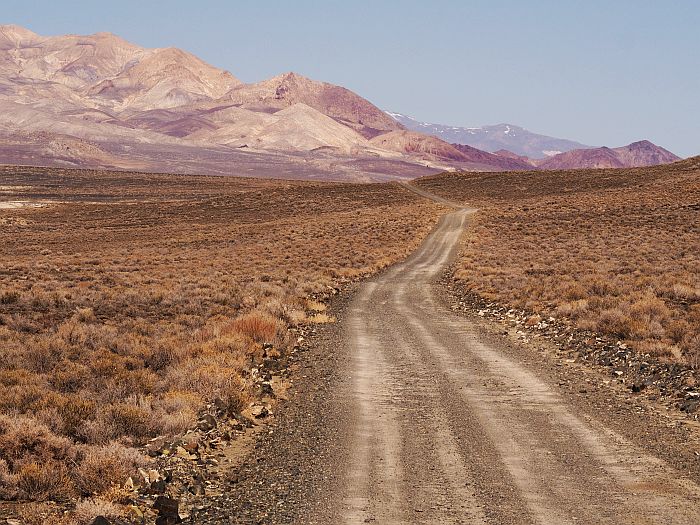
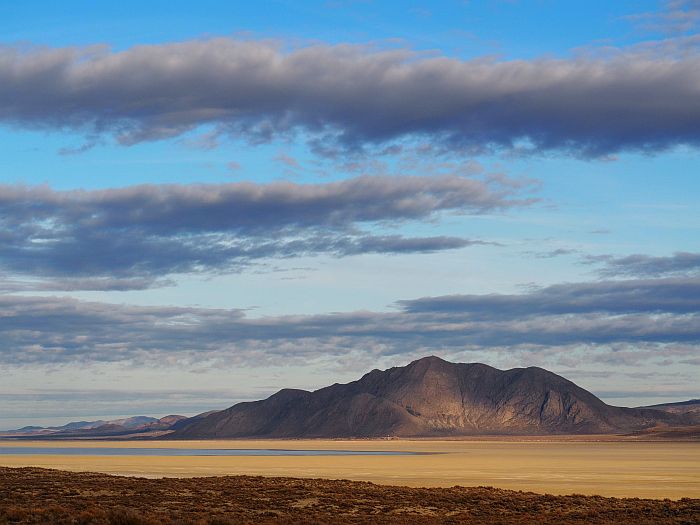
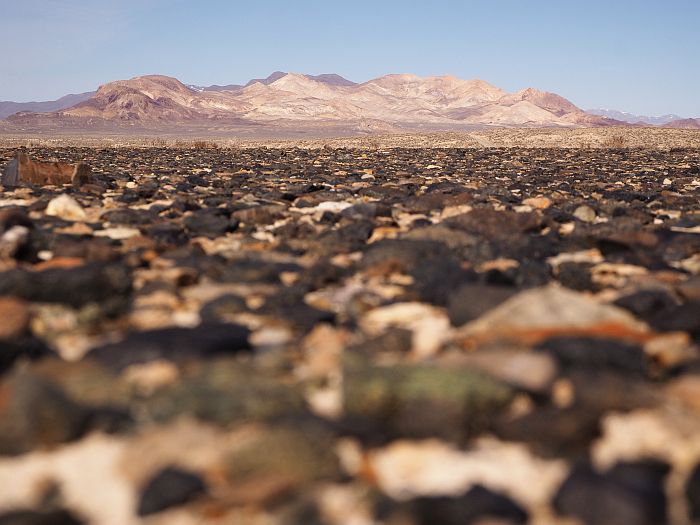
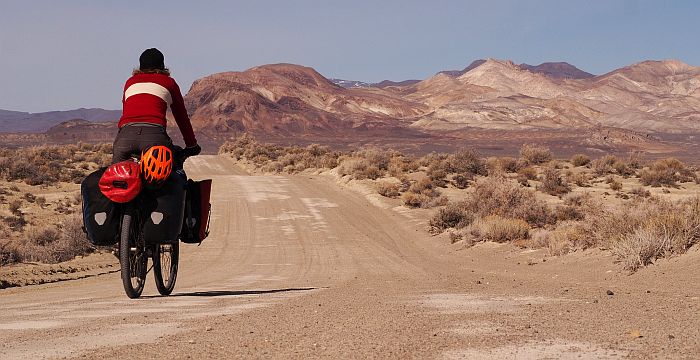
Coyotes howled almost every night. The sun was shining every day, and as always, the starry sky was extremely bright and indescribably beautiful. The color of the rock was multifaceted. Peace and solitude – all right up my alley.
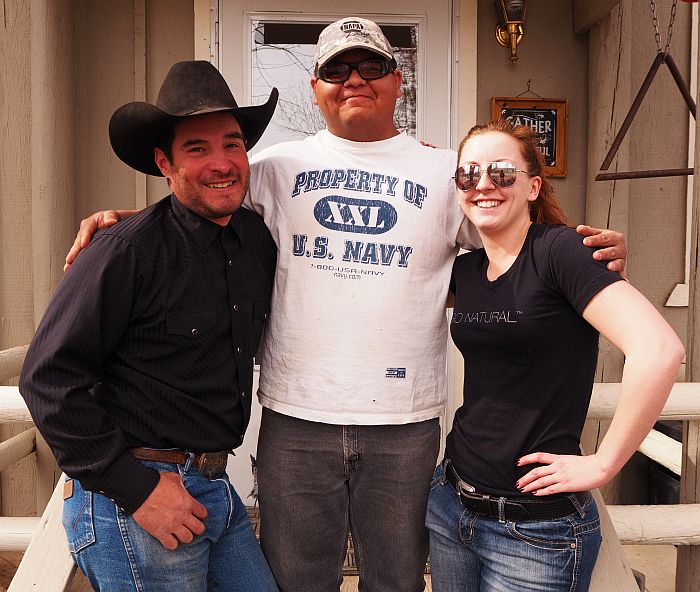
At the Soldier Meadow Ranch, the first farm that appeared since Gerlach, cowboys received me beaming with joy and said “Oh, there you are!” I repeated their statement into thin air “What do you mean, there you are?” with a puzzled look on my face. “People in Gerlach already told us that you were on the way. Come on in, I’m sure you must be hungry.” “Oh great, thanks.”
The three cowboys advised me to avoid cycling the straight way to the north because there was too much snow; so instead, they sent me through the High Rock Canyon, about which they themselves had no information. I made an agreement with them that they should not search for me for at least 5 days if I didn’t report back to them, because they assumed that I would meet no one on that road.
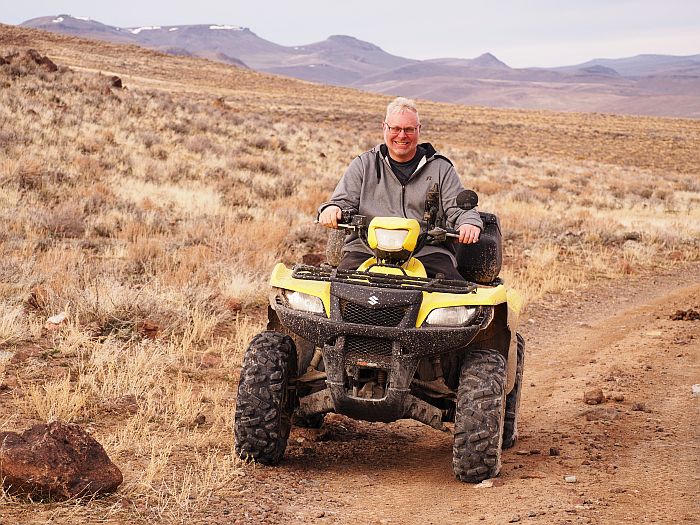
Mark and his friends met me shortly afterwards driving their quads and bringing me delicious snacks for my continuing journey.
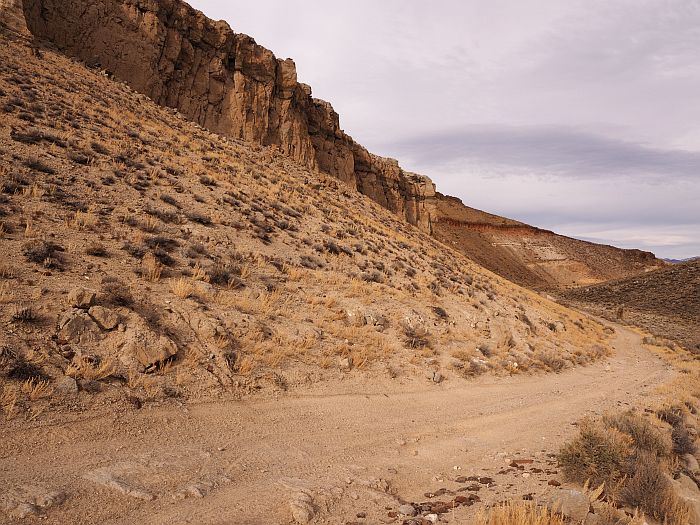
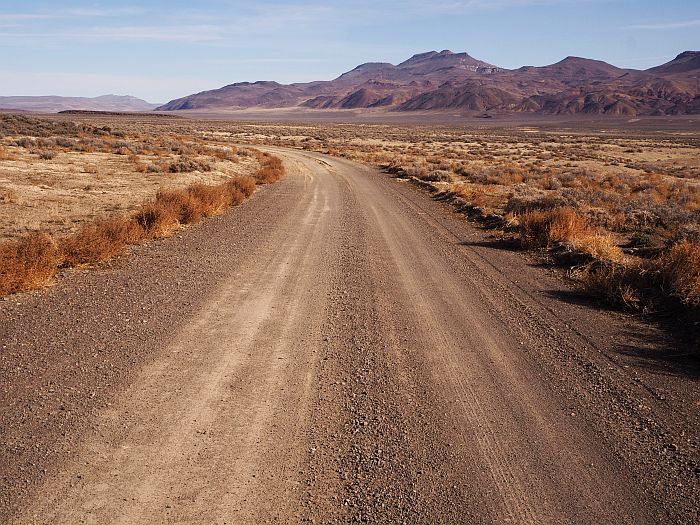
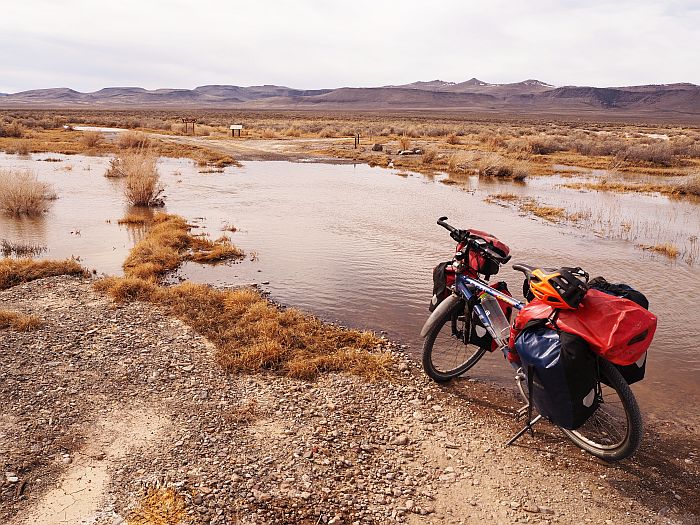
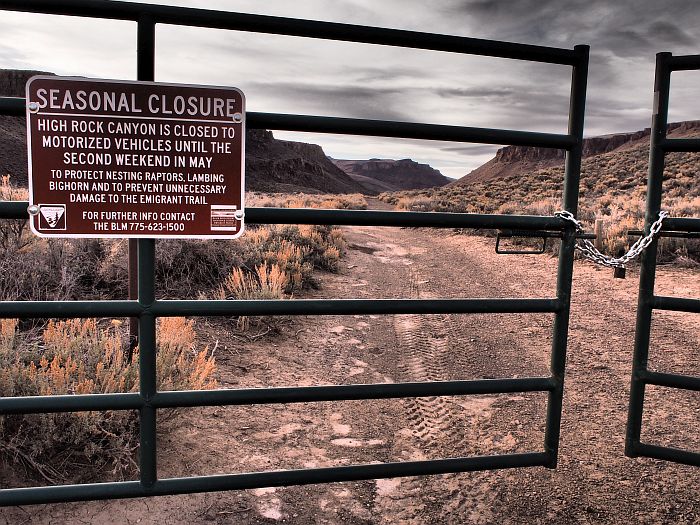
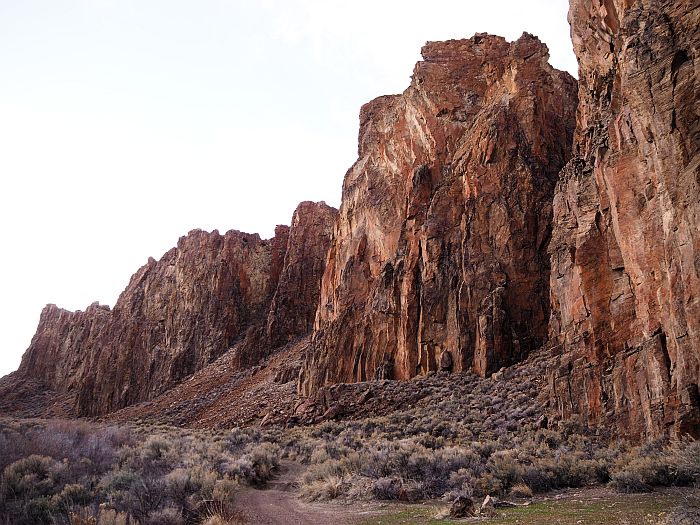
The mouth of the canyon was closed for motorized vehicles. So it was clear to me that nobody would be meeting me from then on. As always, I was curious about what kind of an area I was about to end up in again.
The canyon walls were enchantingly beautiful; the trail was a small path. It was sandy and difficult to negotiate. Pushing my bike was often the best solution.
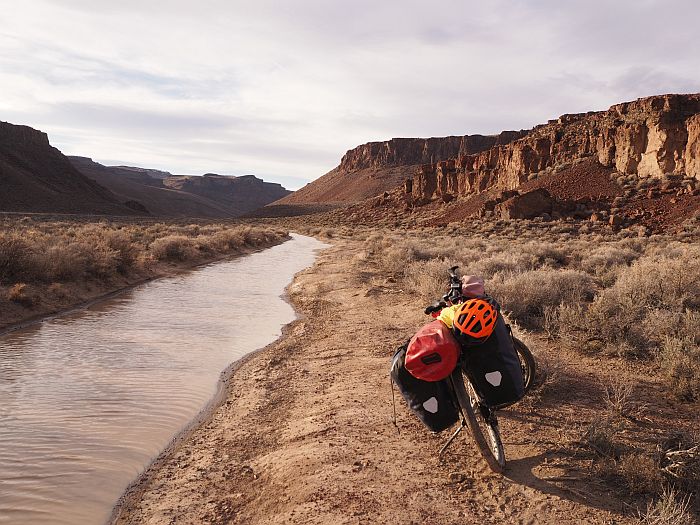
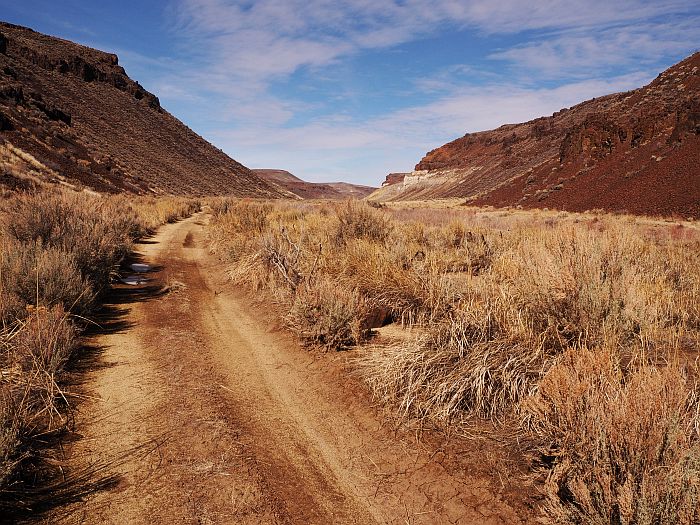
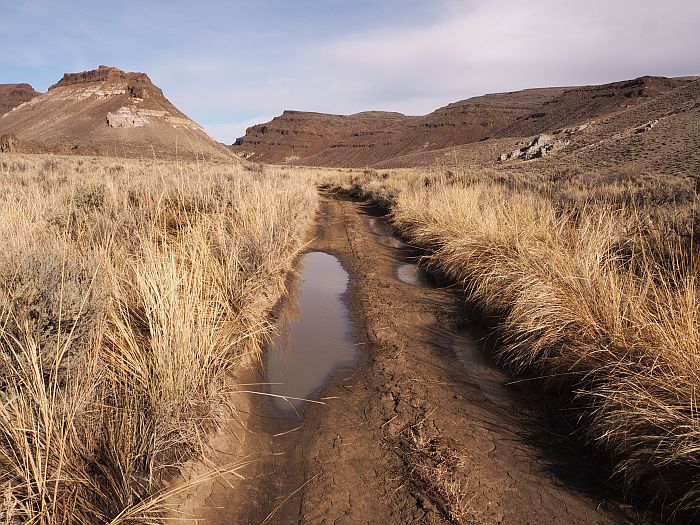
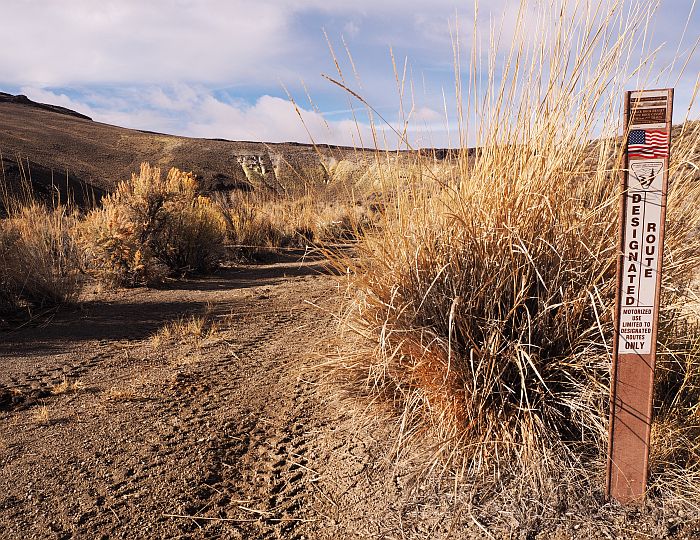
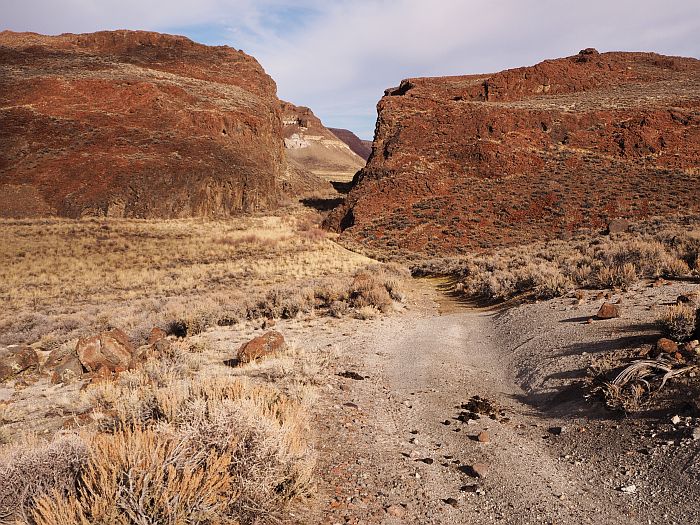
Eventually I came to Stevens Camp, a hut in no man’s land that is freely accessible for visitors to the area, so-to-speak a treasure in the middle of nowhere. The landscape looked somewhat like Scandinavia. The mountains appeared as if they had been graded flat by a glacier. Moreover, they were barren, but with some green vegetation. It was cold and I immediately started up the fireplace, but instead of having a cozy fire, I set off three fire alarms, because the space was completely filled with smoke in a very short time.
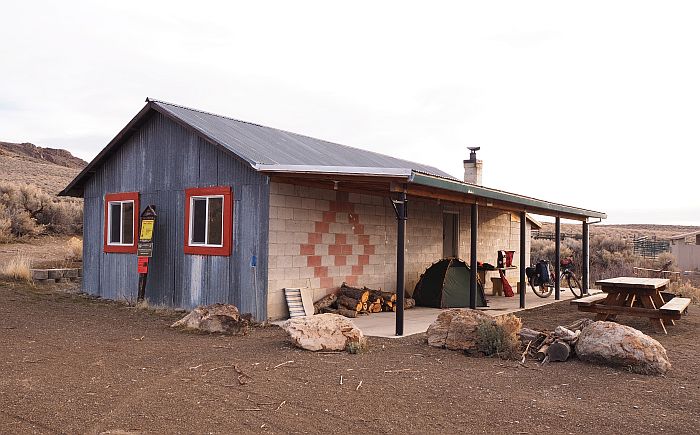
A few miles later, with a brutal headwind, I came back onto a normal road that even had a number. The restricted area was behind me and, from now on, I was a little closer to civilization.
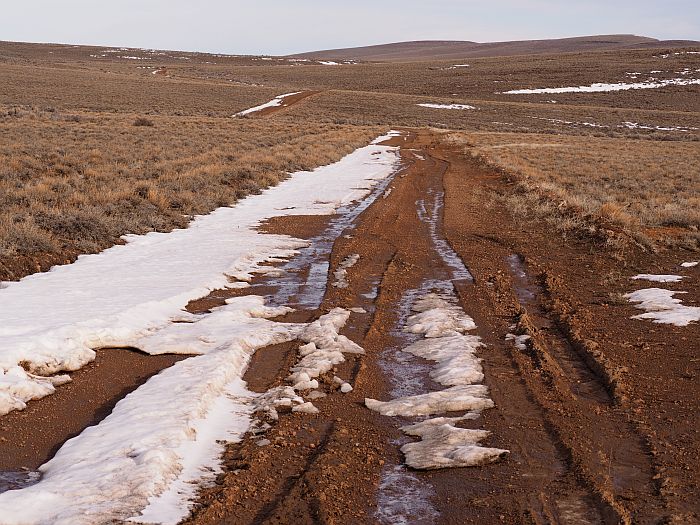
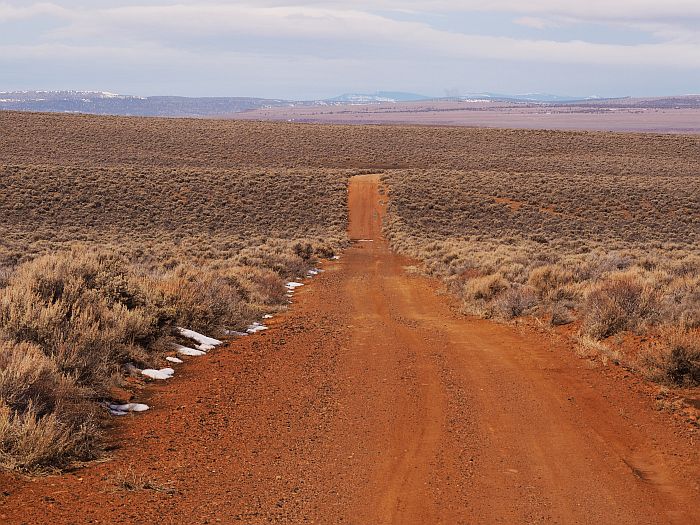
Exactly at the sign that said Welcome to California, the paved road began again; Cedarville was not far ahead.
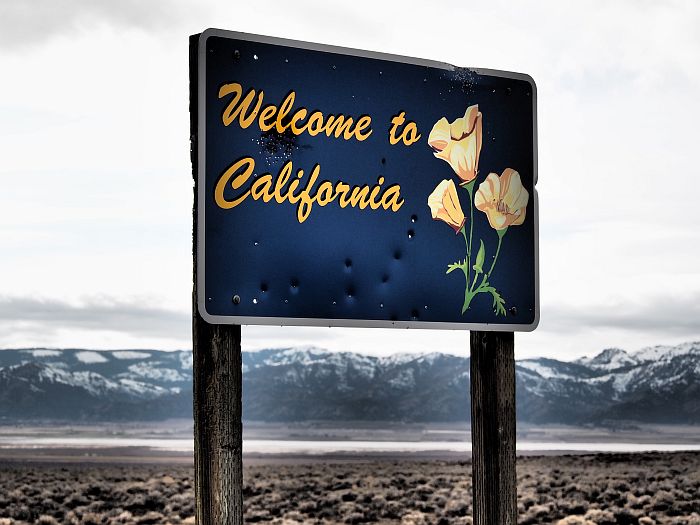
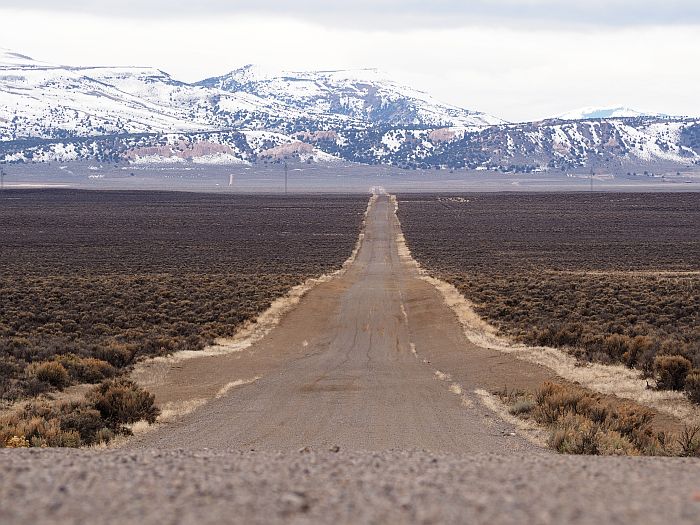
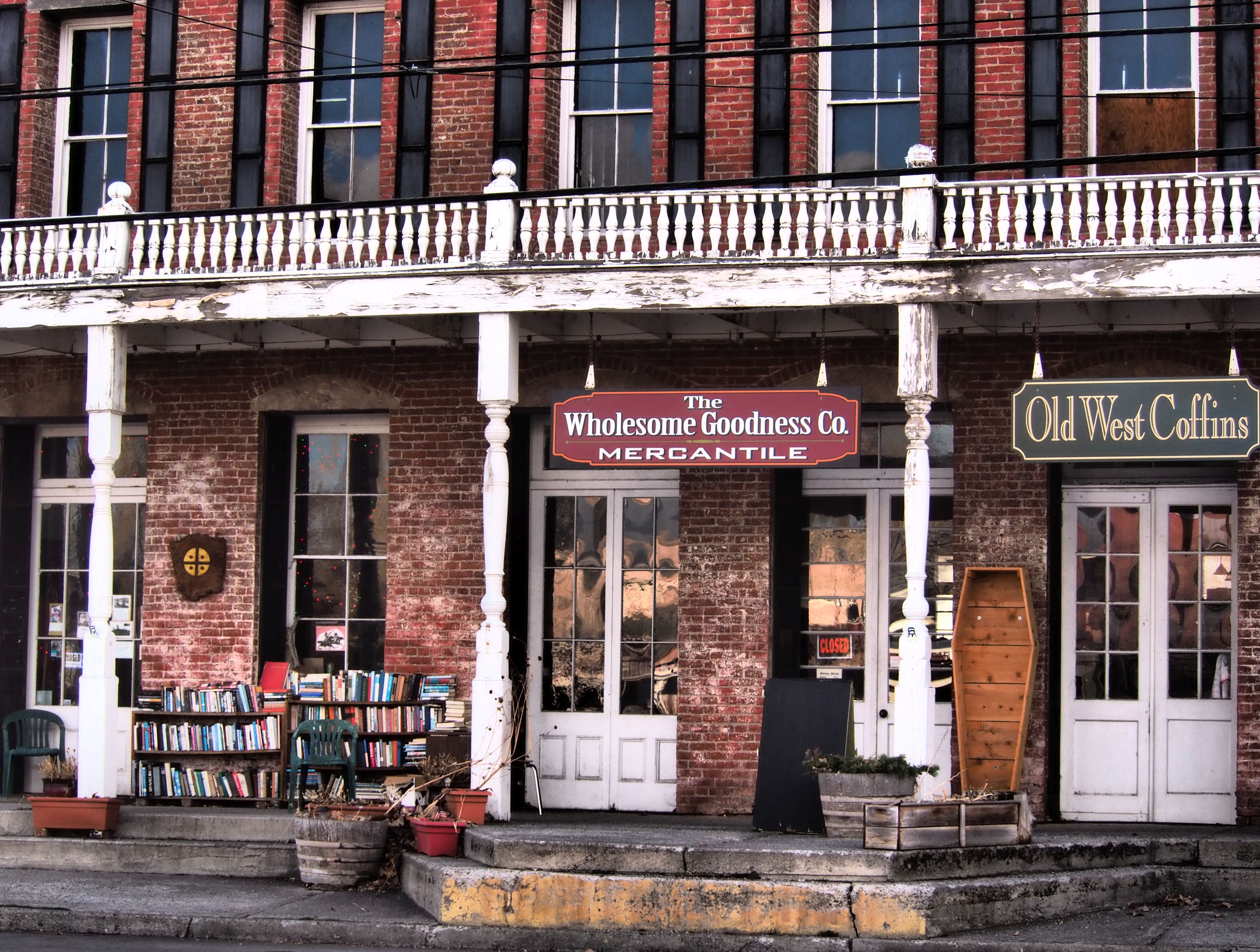
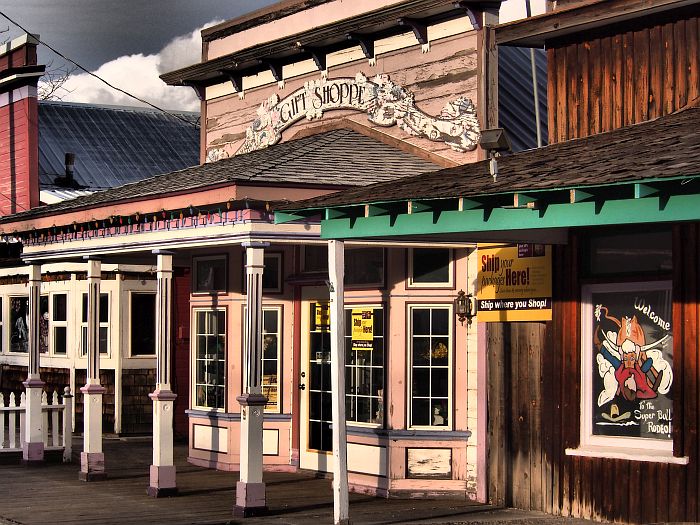
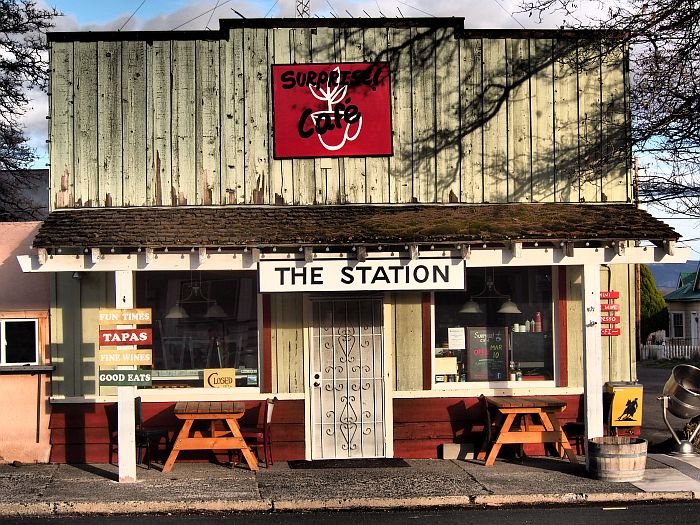
I was pretty much exhausted and wanted to take a shower somewhere to get me back on track, but the motels wanted $70 and more. So I sat in front of a small shop in self-pity for a while; then Amy came along and asked me how she could help, which really made my day.

Amy lives in a stunning location. She is an artist, who creates the most beautiful things from natural materials. We both had a lot to talk about. It was a great encounter with delicious food, a hot shower and a warm bed.
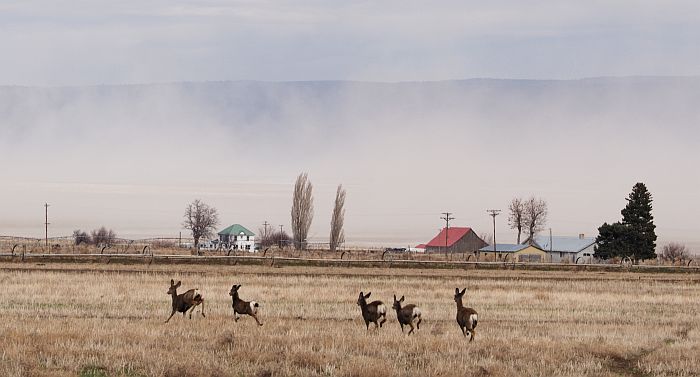
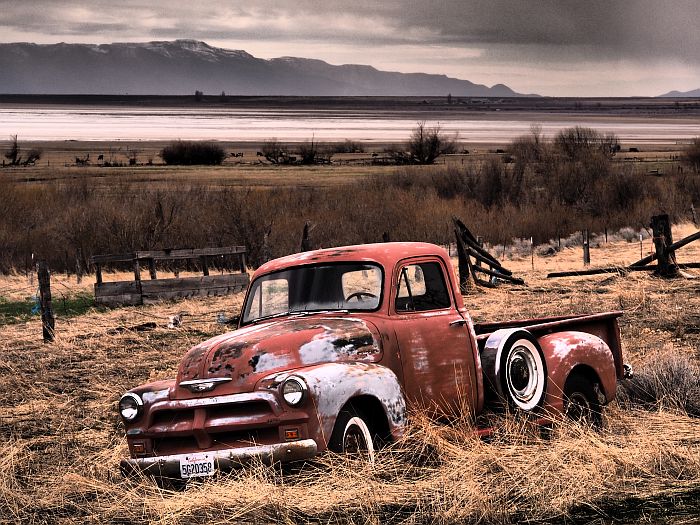
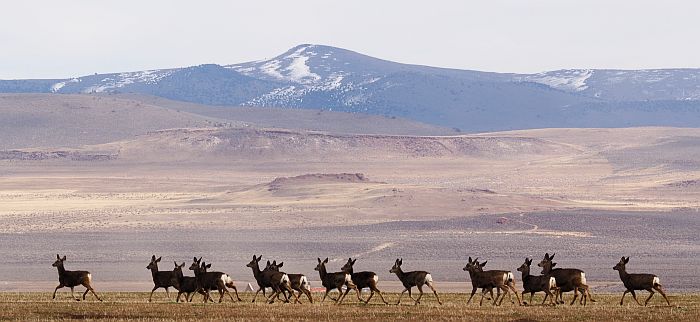
The landscape was transformed and the desert became farmland. A snow-covered mountain chain accompanied me as I cycled northward. The houses were magically comfortable and the people in that region were the nicest of all. Not a single car passed me without the driver waving to me in a friendly way.
Again and again I saw deer, birds of prey and a plenty of ground squirrels, who squeaked as they ran away from me.
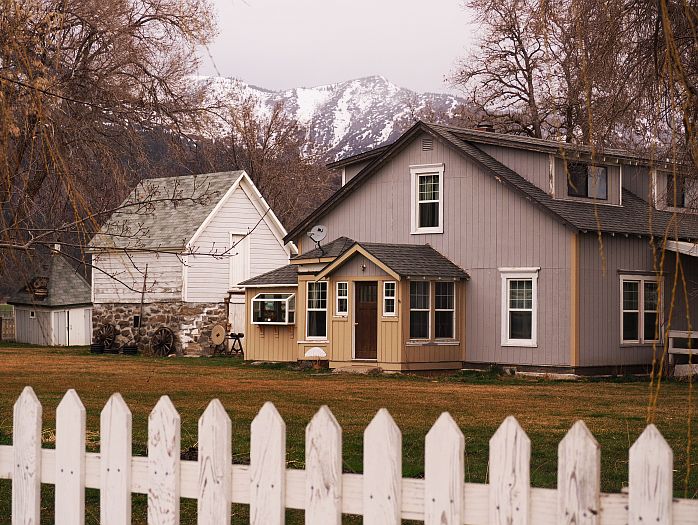
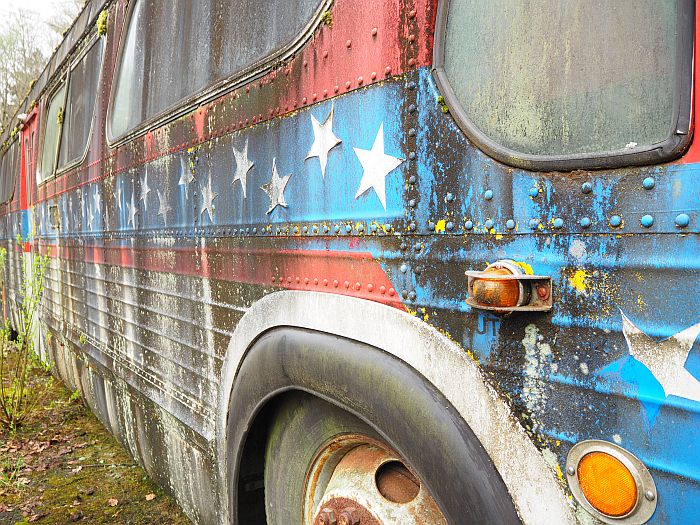
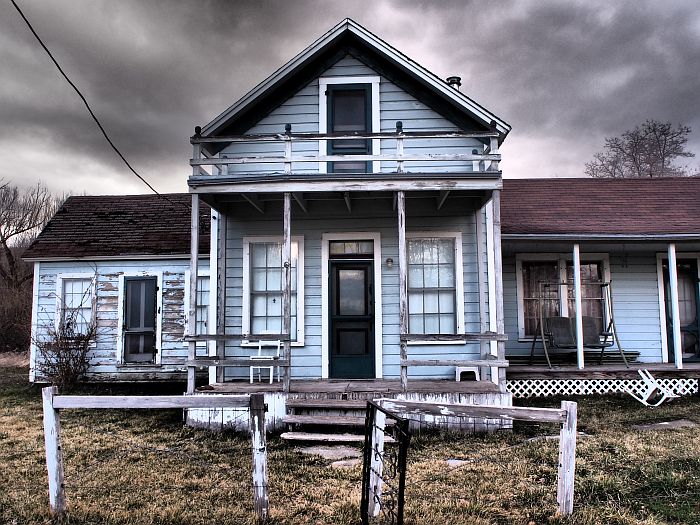
I reached Oregon and a region that is known to be very stormy. And so it was. It was even brutally stormy.
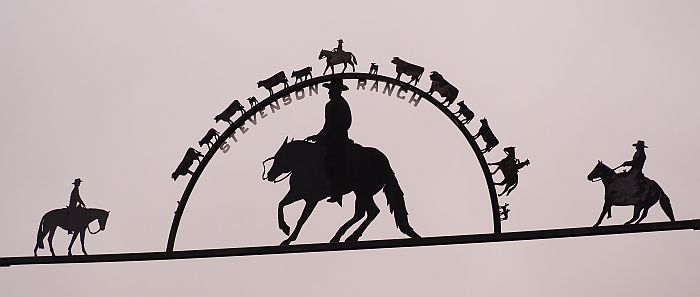
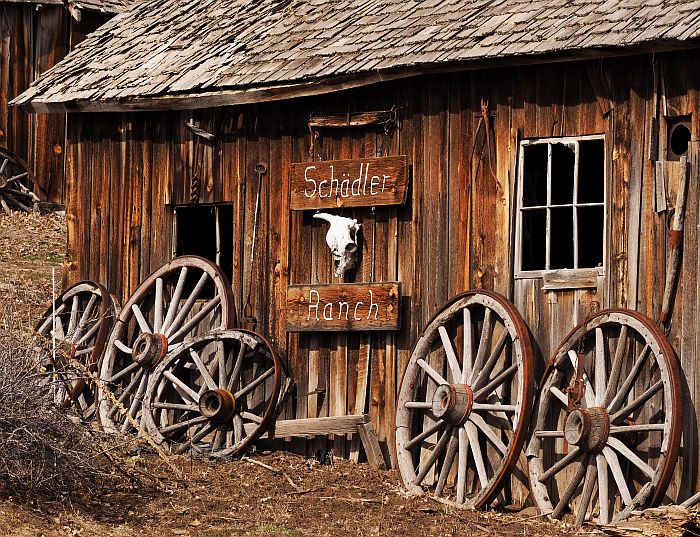
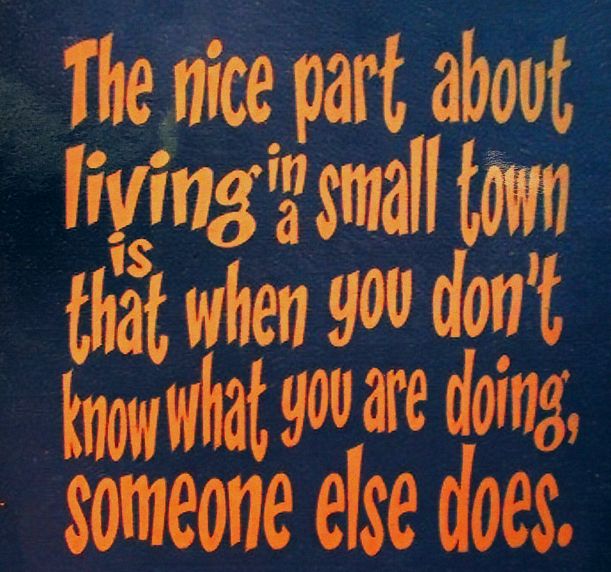
In the pub in Plush, a tiny village where everyone knows everyone else, I met Jesse. Jesse had ridden his horse a few years ago across the USA and was currently researching for his book. He was a funny guy with whom I chatted for hours.
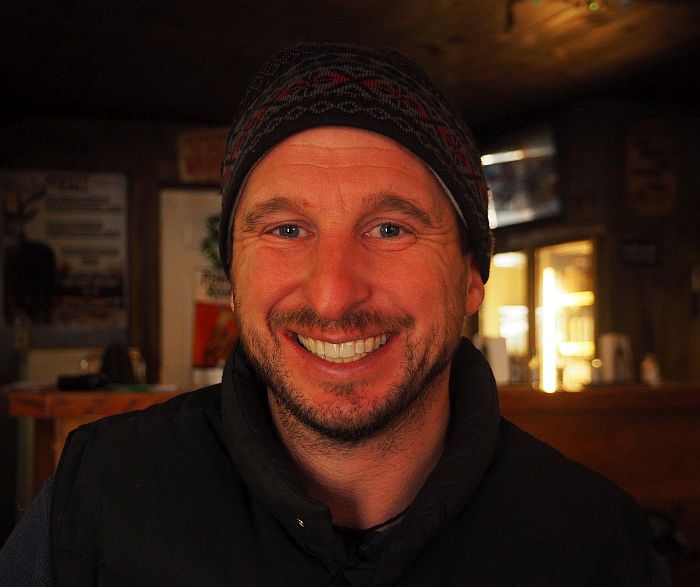
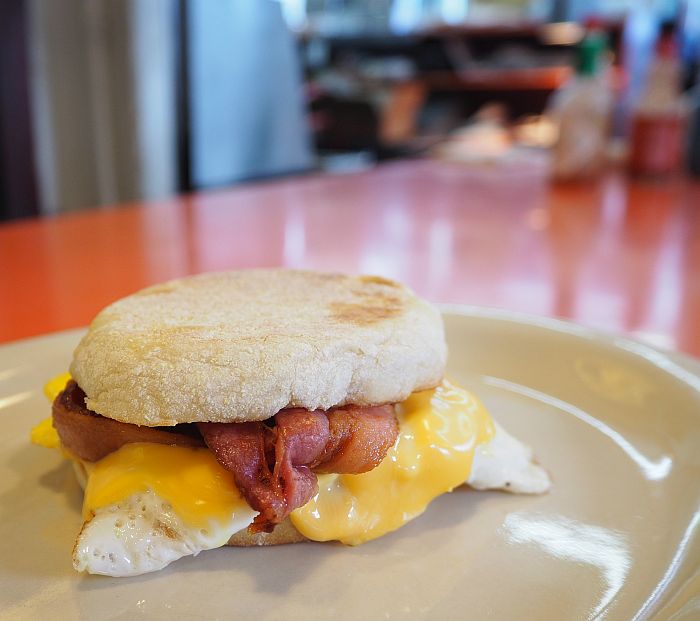
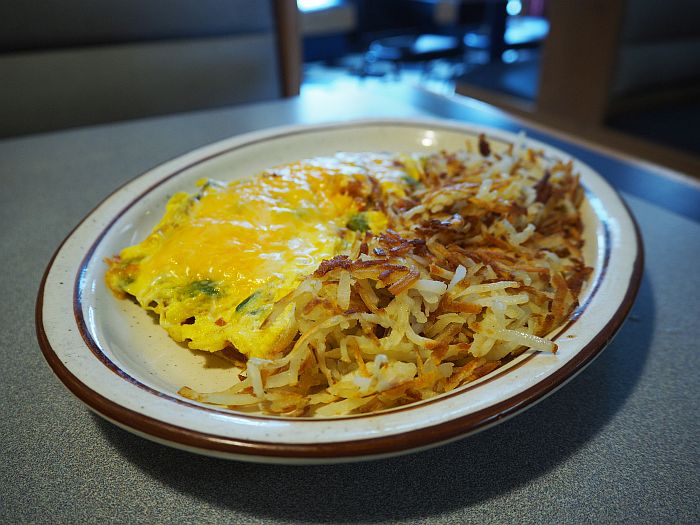
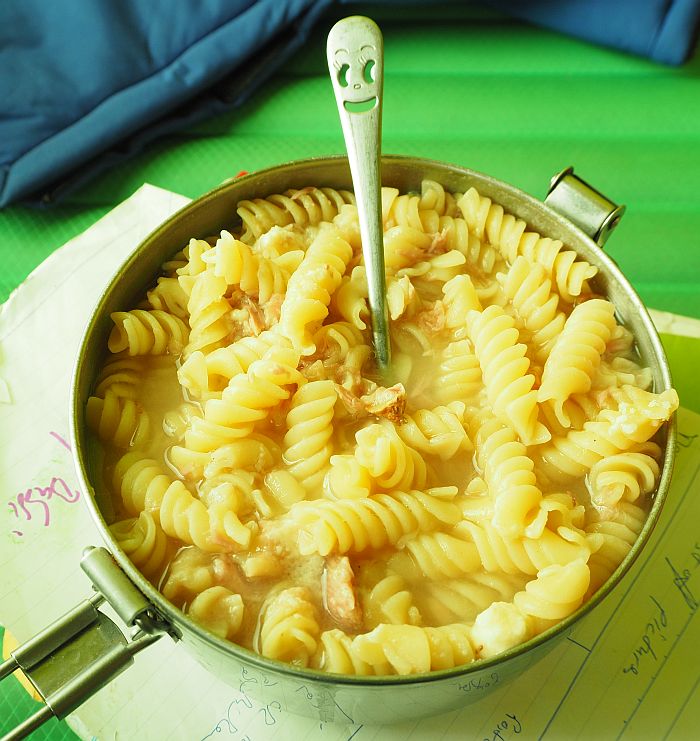
Unfortunately, the problematic thing about the remote areas in the US is the food. Not only is everything expensive, but you can only find junk food. The menu is always the same: hamburgers fried chicken, fries, sandwiches, etc.
At the gas stations there are potato chips, chocolate, frozen food and instant soup. I had really become tired of it and looked forward to finding nothing more than a supermarket where I could shop for anything I wanted again. But the next supermarket was still far away – as always in the US – extremely far away.
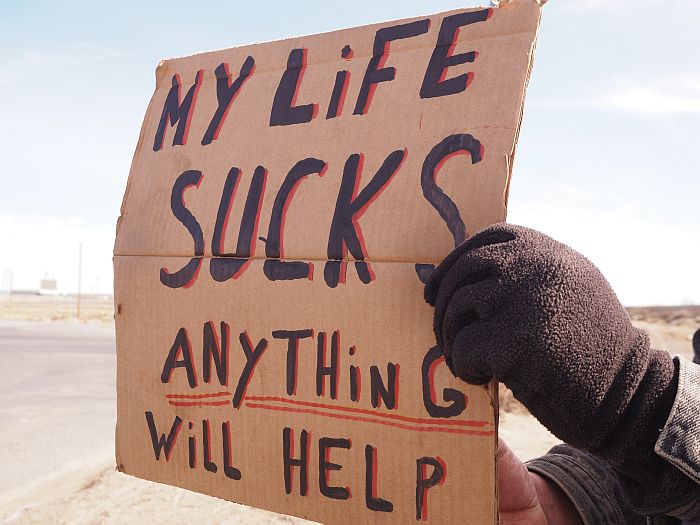
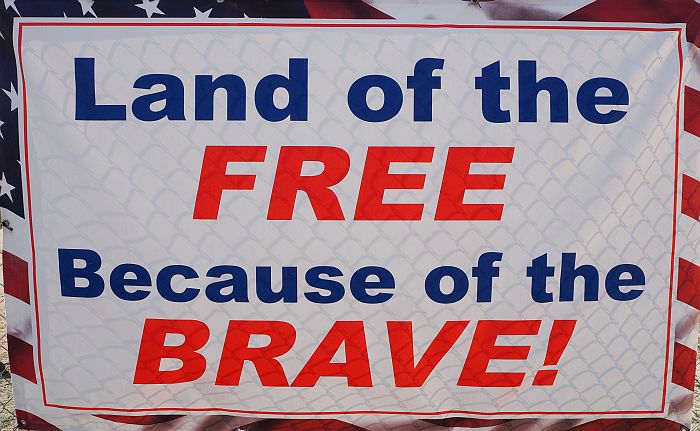
And while I was fighting with the wind and the gravel, thoughts about the Americans were once again going through my head.
As the Republican Jeb Bush dropped out of the presidential election campaign this year, he said the following in his farewell speech to the nation:
“Thank you for the opportunity to run for the greatest office on the face of the earth.”
“I love you all.”
“God bless you.”
I don’t have much to say about the first sentence. He says nothing more than the Americans are the greatest. That many Americans are “patriots” is well known and I don’t even want to go into that, because the Americans are well aware that, at the present time, it no longer looks so rosy in the country. “Make America great again” a well known slogan.
And there are others who find it rather silly to be a proud American anyway.
Regarding “I love you all” – if a politician were to say that in Germany, it would be the headline of the year, because for us this sounds really strange. Germans have a different way of expressing themselves. But what does it say about the Americans?
Americans are using “I love you” in all sorts of situations. We Germans are far more stingy in saying it, because it has a very strong meaning for us. Americans say it to their family and among friends, and I’ve even experienced myself that a woman said “I love you” to her neighbor.
In this context, I believe, it doesn’t mean the same thing as when Germans say “I love you”. I would translate the American way of saying I love you in a lot of cases into “I think you’re OK” or “you’re important to me” or “I like you a lot.”
That a son would say “I love you” to his mother, or a grandchild to his grandfather, or a father to his son comes natural. It is something that seems to be very difficult in the German culture. In the case of Jeb Bush, I guess the intended meaning was “You, the American people, are all important to me.”
What I really find very positive is that people repeatedly say it to each other, to make clear that their loved once are special to them. Something which is missing a lot where I am from.
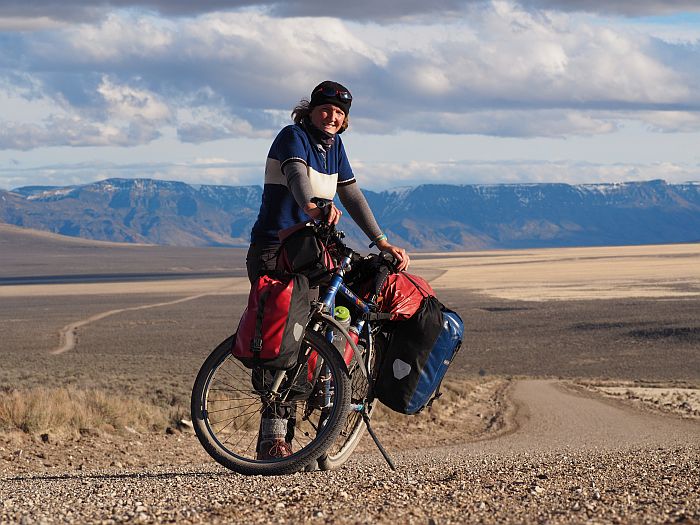
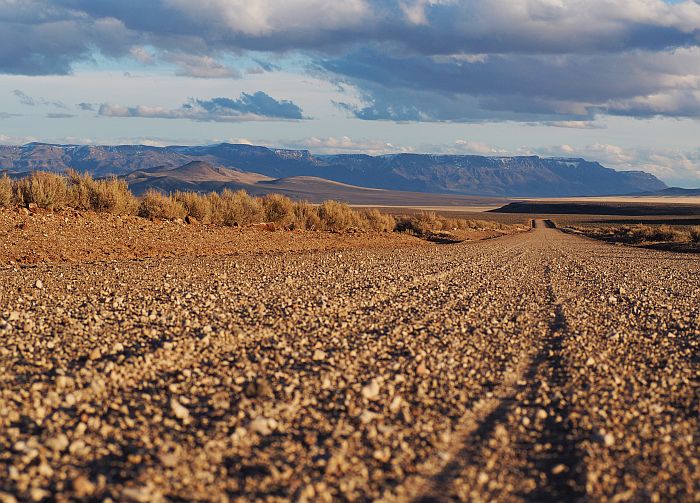
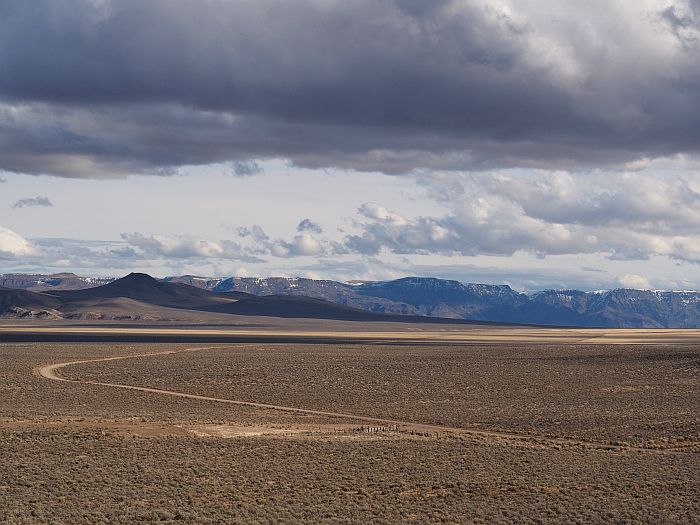
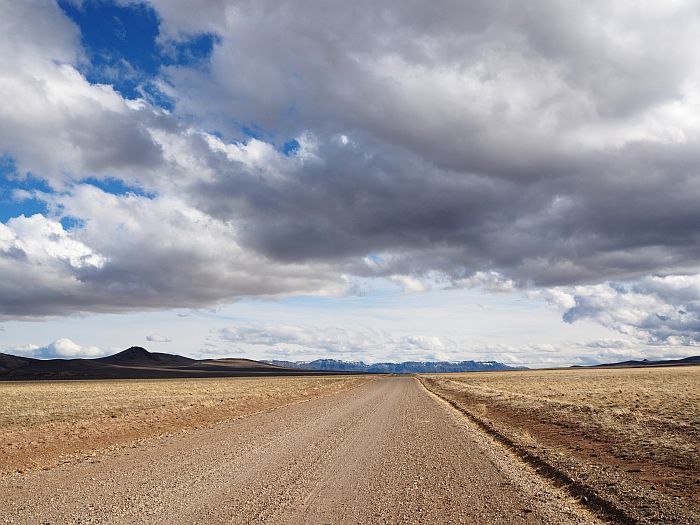
Even in Oregon, there are long stretches of absolutely nothing. The east is barren. The wind was blustery. Because of the strong southwest wind, I was not able to continue westward, the direction I actually wanted to go. But I had so much tailwind that I was able to make a lot of progress northward and then seek out a different trail later.
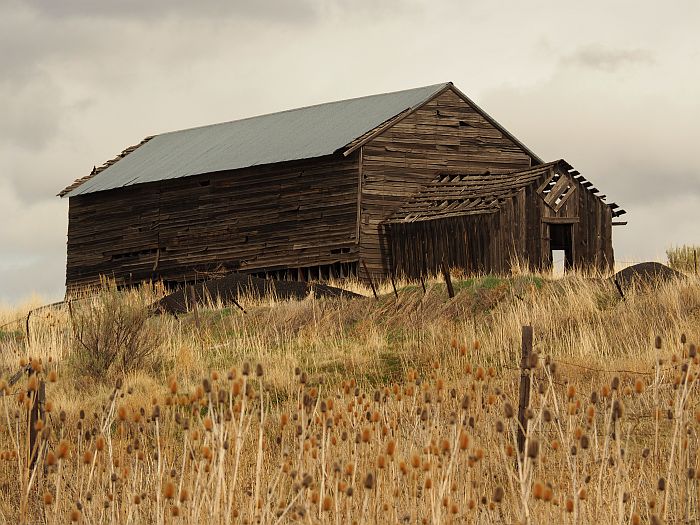
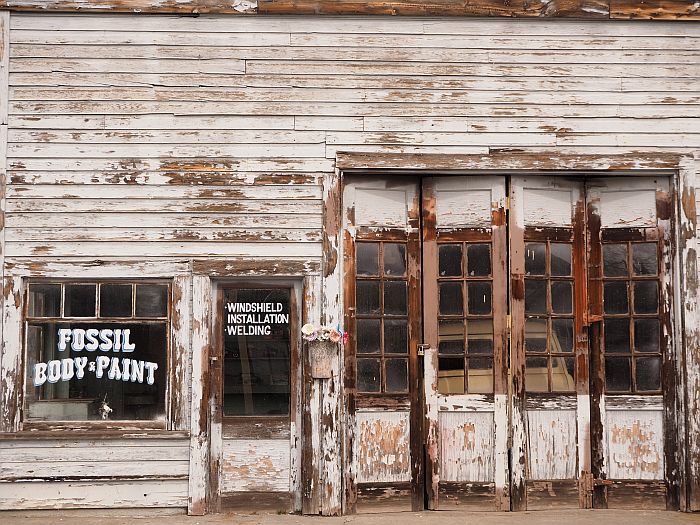
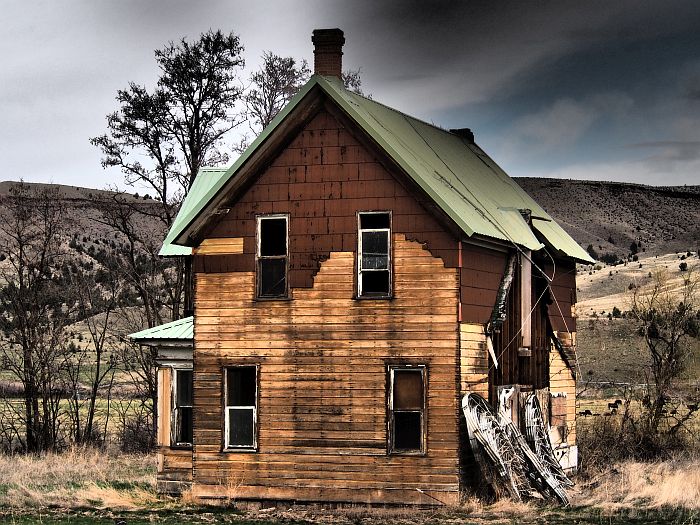
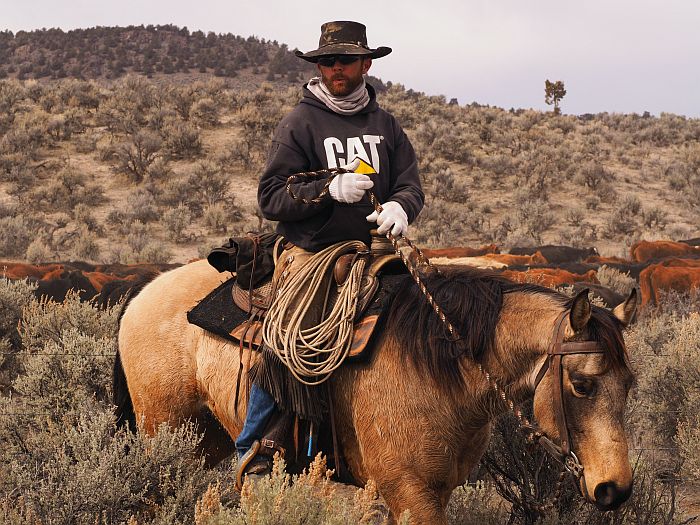
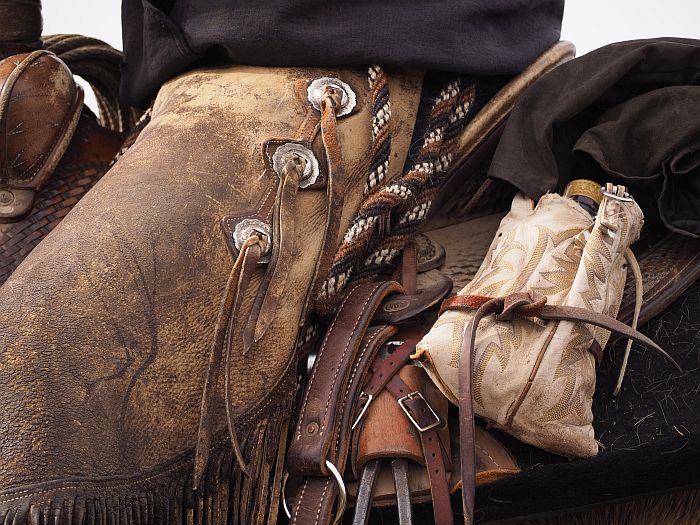
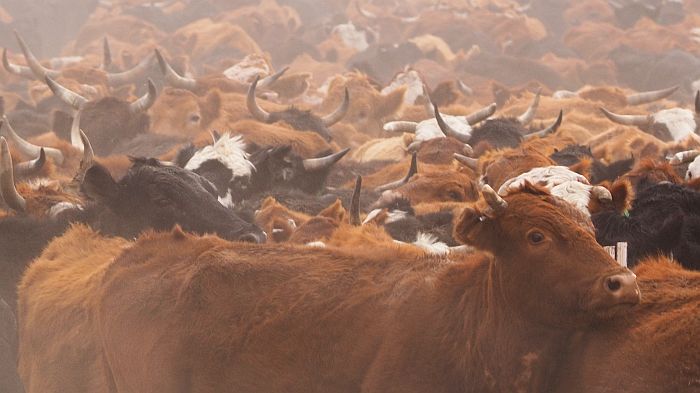
I arrived in John Day totally frozen and asked at the reception of a motel: “Do you have a heart for a female cyclist?” „Yes we have. Just give me $10 for the night instead of $60.” Great!
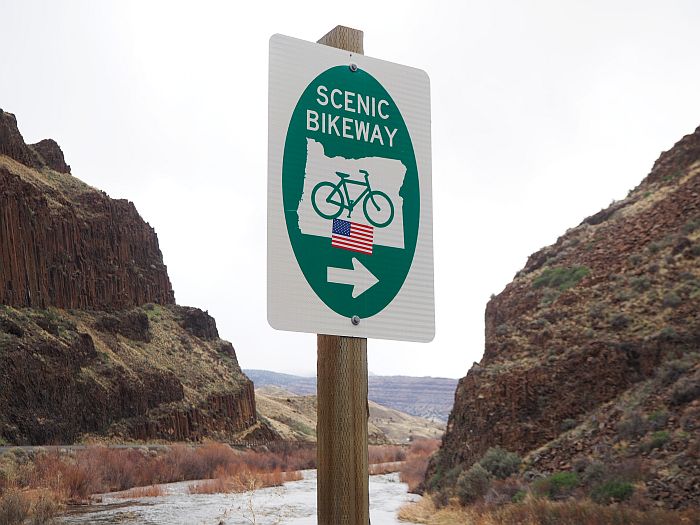
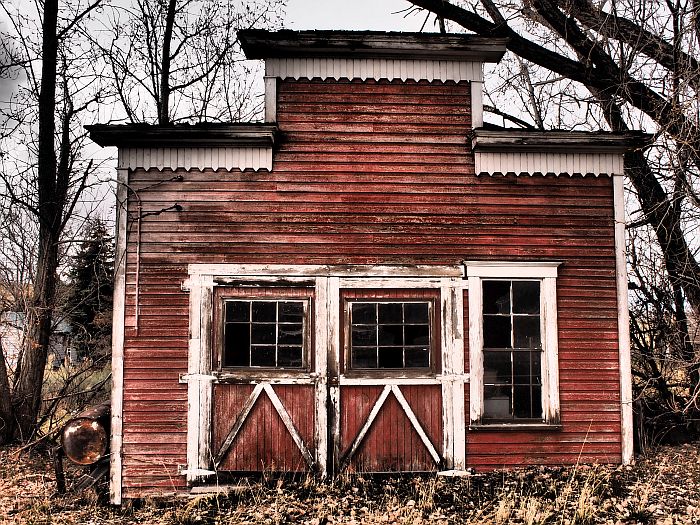
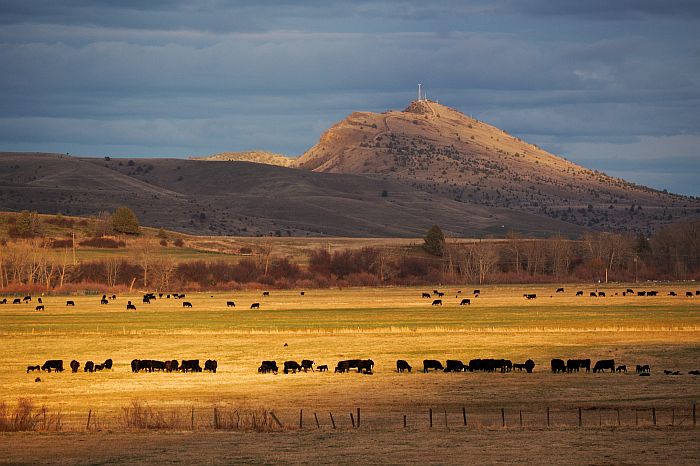
The trail followed a river and the landscape was filled with rolling hills. It rained non-stop and, because of that, the colors were often only grey in grey. And the joy of cycling was somewhat limited.
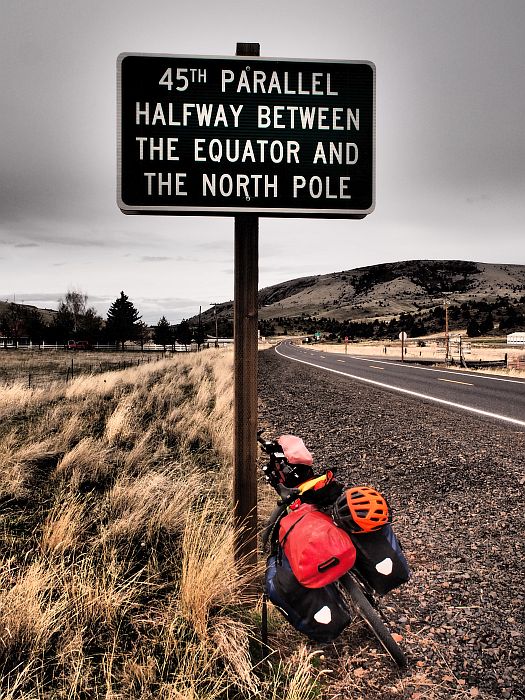
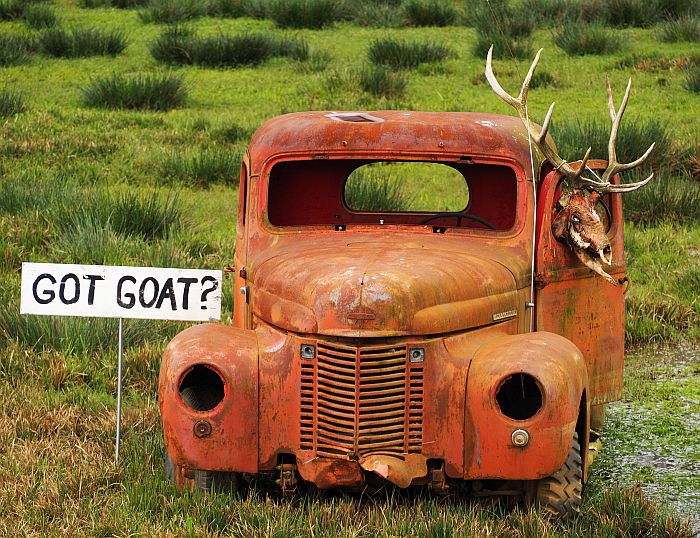
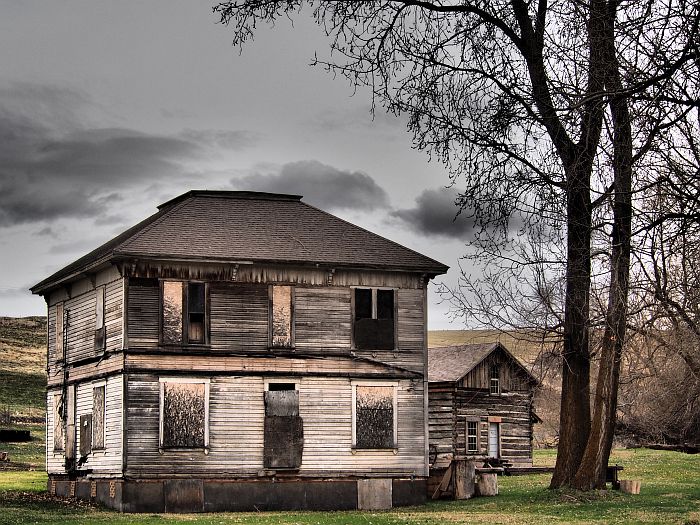
I met lot’s of nice people. I was allowed to pitch my tent in an old barn and was entertained half the night by the owner’s horse, which pounded again and again against the door.
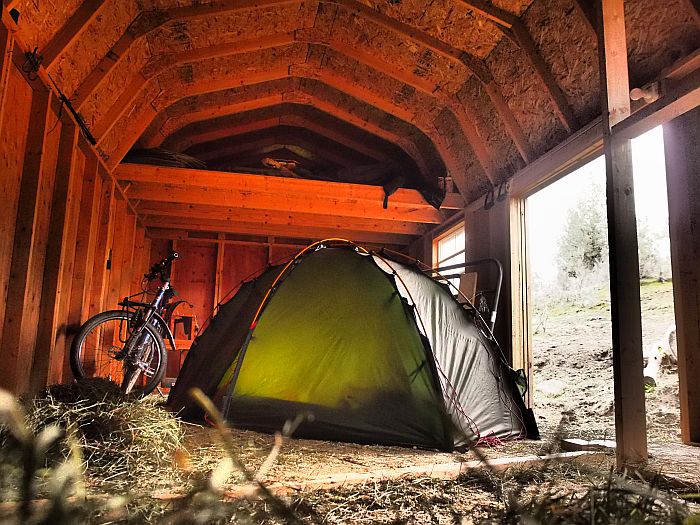
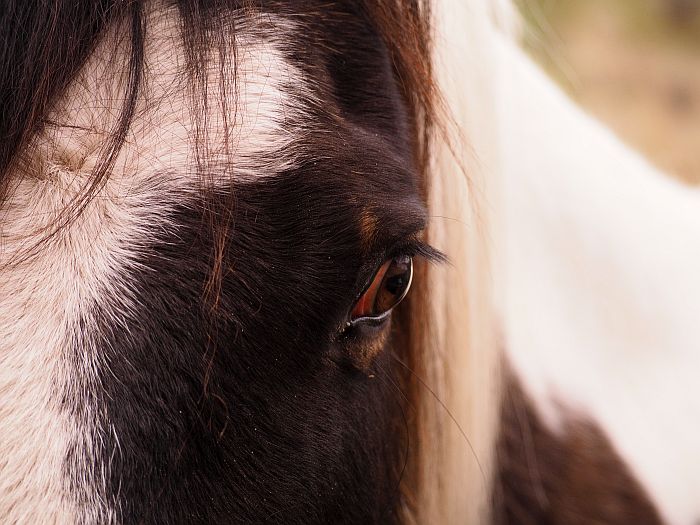
My breakfast was paid for by a man who didn’t even speak with me. One man came to me and gave me $60 because he saw my bike. Another gave me $20. The owner of a pub, Lisa, didn’t want to accept any money for the omelet that she made for me.
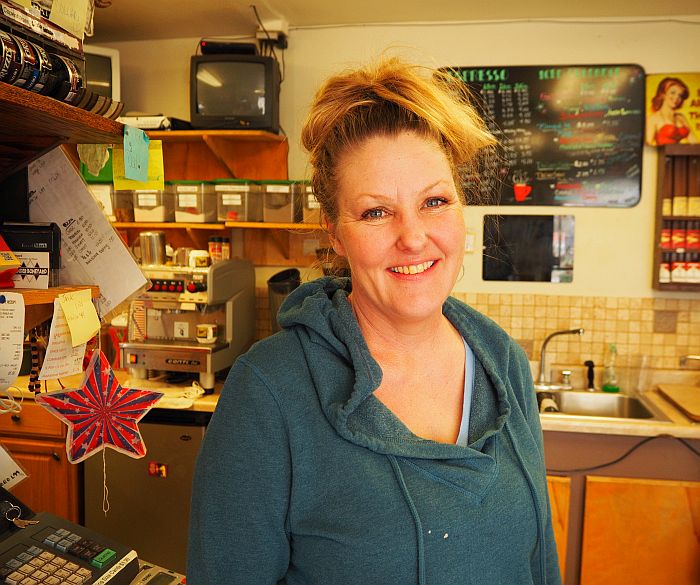
I met Teresa, who arranged to get a motel room for $20 because it was continuously raining. I pitched my tent on a baseball field under the roof of the coach’s bench, and as the school children walked by the next morning, they looked at me with a friendly smile as they passed. Another lady invited me to eat chicken strips and fries in her fast food stand.
Regardless of the rain, it was just wonderful.
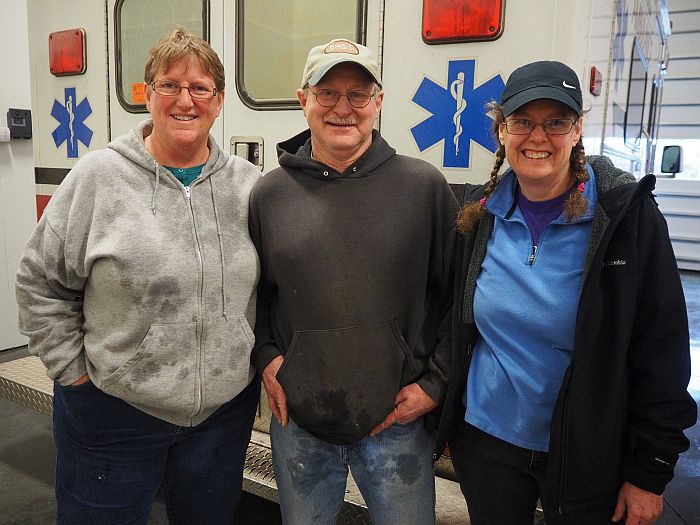
Shannon and her friends allowed me to sleep in their brand new fire department building, and since it was snowing the next morning and really miserable weather outside, I allowed myself to be talked into being taken a short distance further with a car. They also supported me with some money.
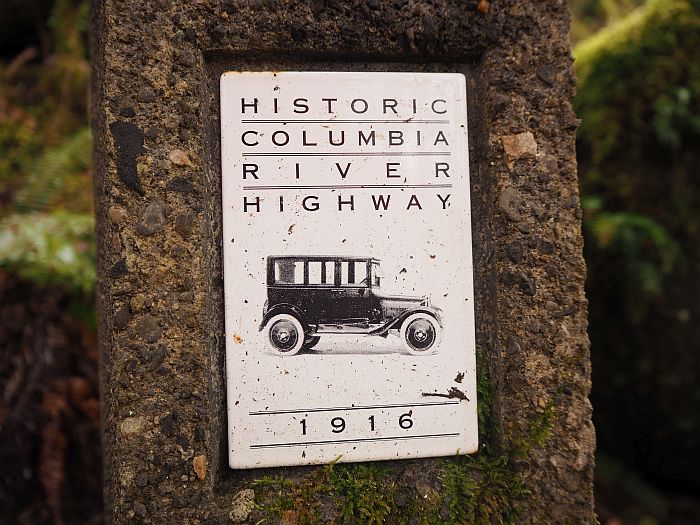
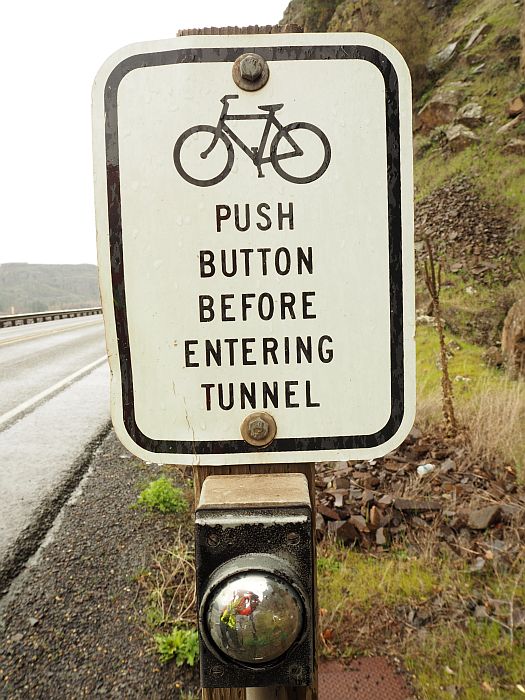
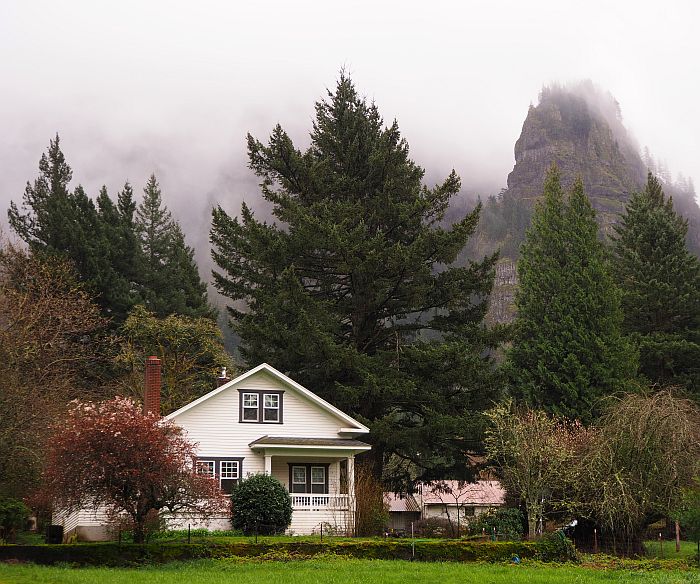
I had reached the Columbia Gorge. In reality, I wanted to cycle further to the north and from there over the mountains into Canada, but unfortunately, there was so much precipitation that led to even more chaotic snow in the mountains, that was no longer an option.
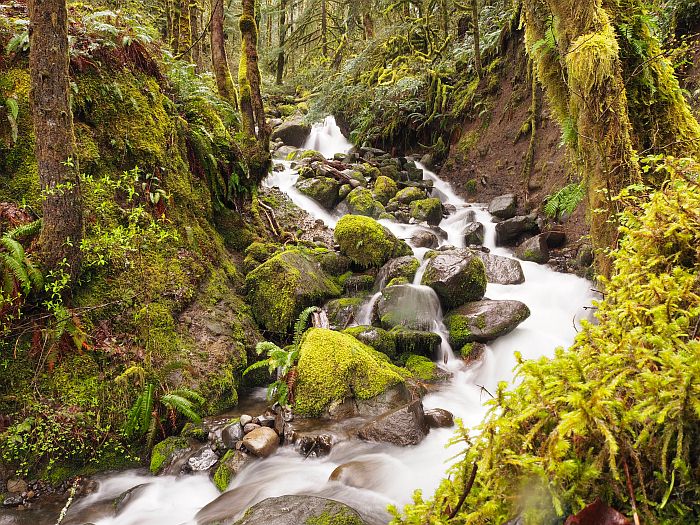
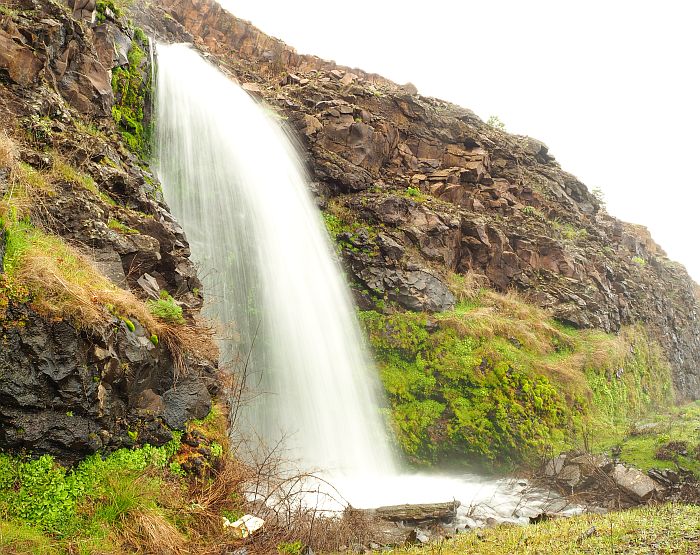
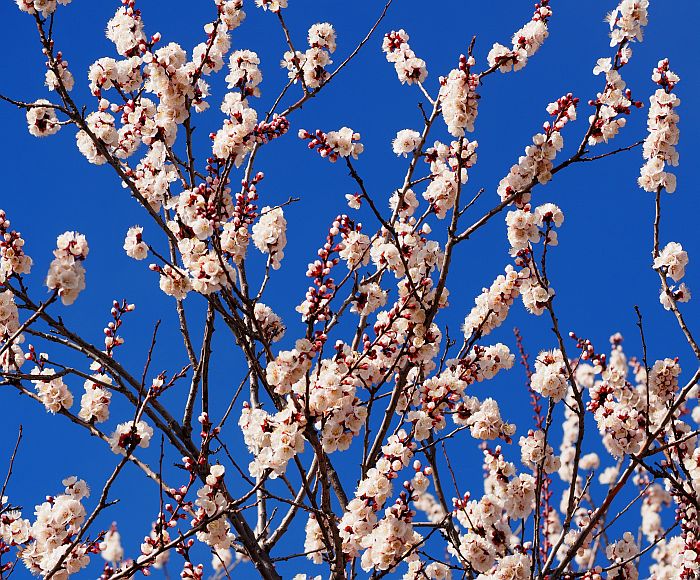

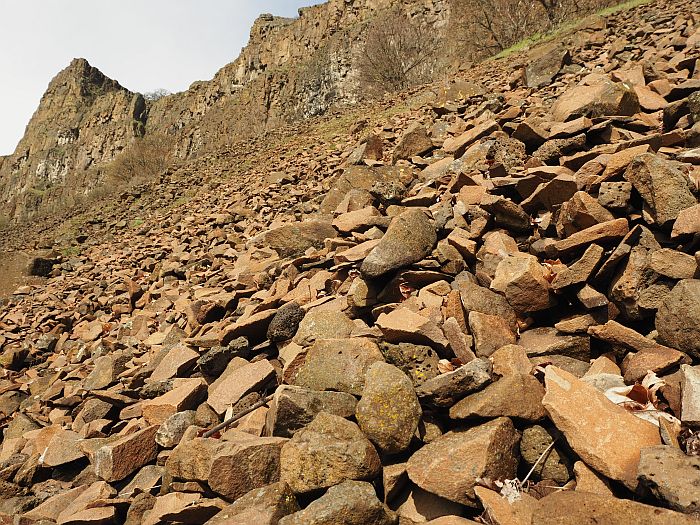
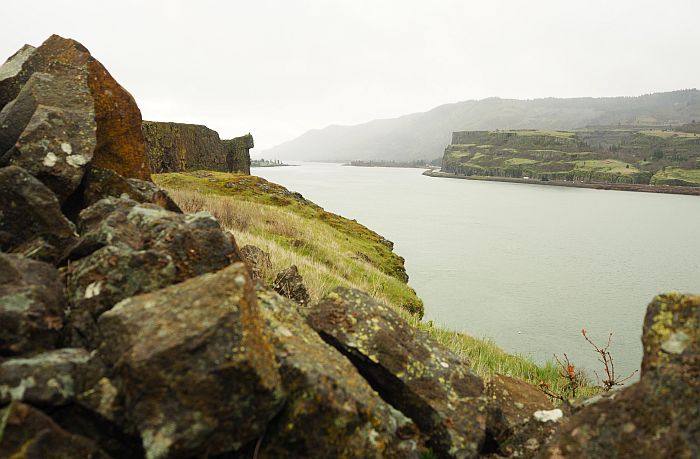
In the Gorge I saw cyclists for the first time – more cyclists in one day than I had seen in the last 5 ½ months altogether. The Gorge was pretty, but also pretty loud, because the traffic was brutal and I was absolutely not used to that anymore. The solitude had come suddenly to an end.
It rained cats and dogs continuously and there was not a lot of fun anymore.
Mayah picked me up and let me sleep at her place in a dry bed. Rick, the brother of an American friend of mine in Germany, provided me with food and supported me generously in Portland.
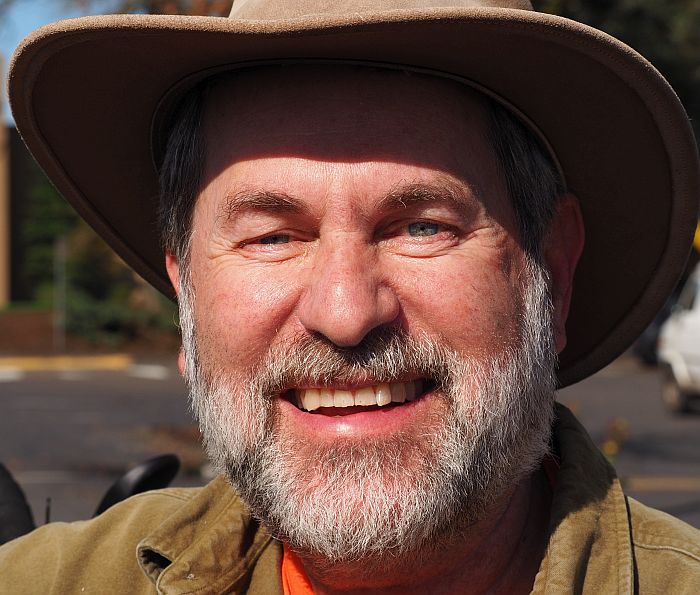
After 12 long days of rain, the sun finally came out again. I had come closer to civilization than before, because there were even cycling trails here – abandoned railways that had been converted into cycling paths.
The people stopped for cyclists at the zebra stripes and were really cautious around me. It was the exact opposite in comparison to the other cowboy states I had visited earlier.
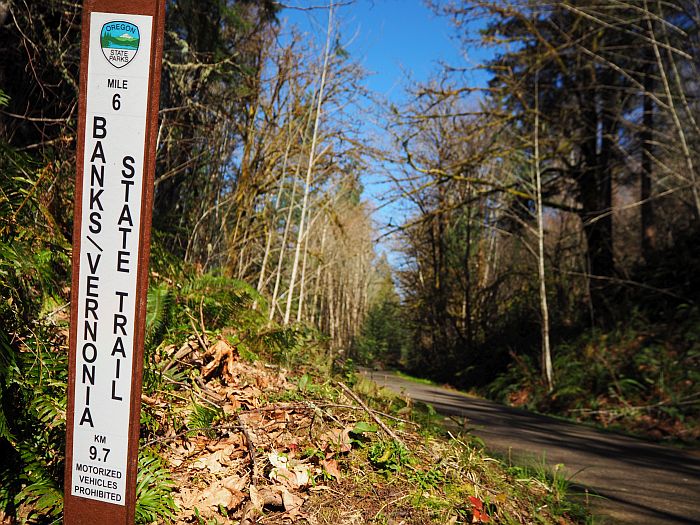
I remember a conversation I had once somewhere in Arizona when someone asked me how I could have come up with the idea of riding my bike around the world. When I told them about my world at home and explained that my mother pedaled 3 miles to a supermarket to get her groceries at the age of 73, they were speechless.
Here in Oregon, the people see it differently. Here they ride bicycles themselves.
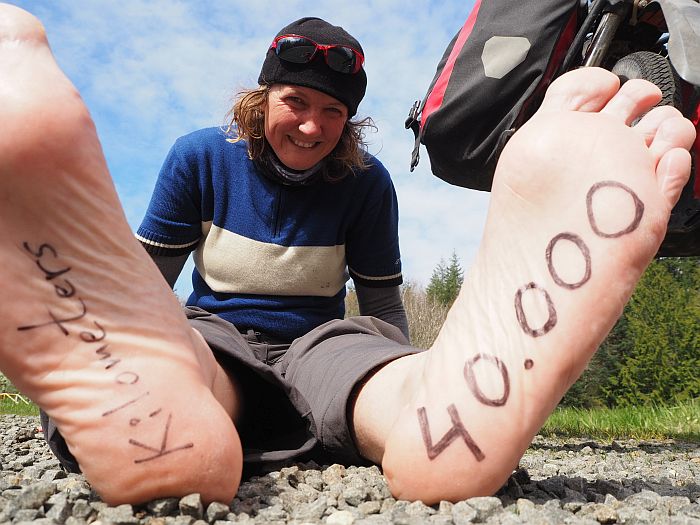
Shortly before Washington I reached my next milestone: 40.000 kilomters.
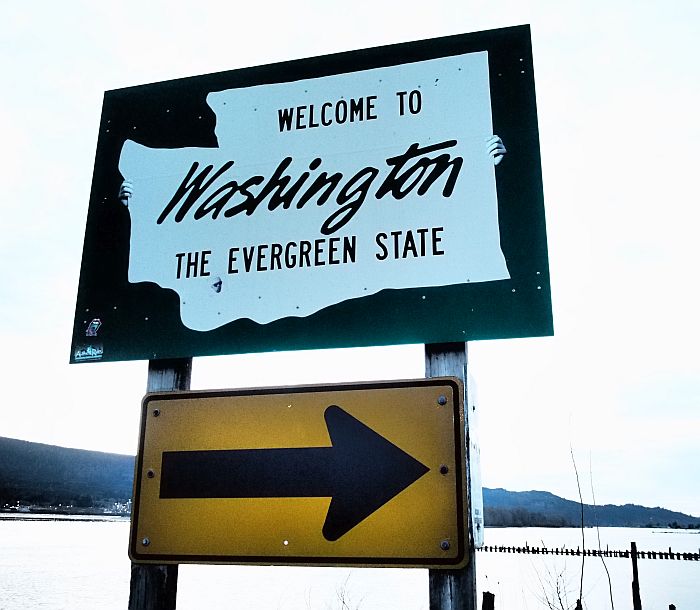
The sun didn’t remain long and the rain accompanied me non-stop the last few days through Washington.
One night I slept in a church; the pastor there immediately gave me a warm welcome. Two nights I slept in Christopher’s trailer house on a marijuana farm and was spoiled there as if I were a duchess. Recently, marijuana became legal in Washington.
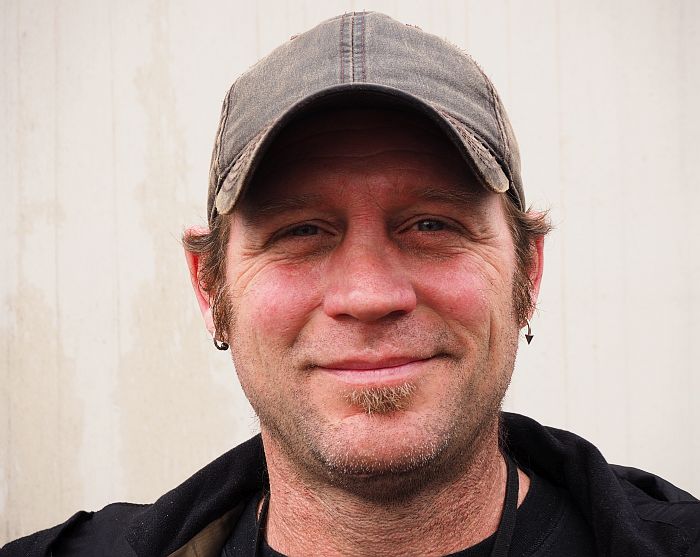
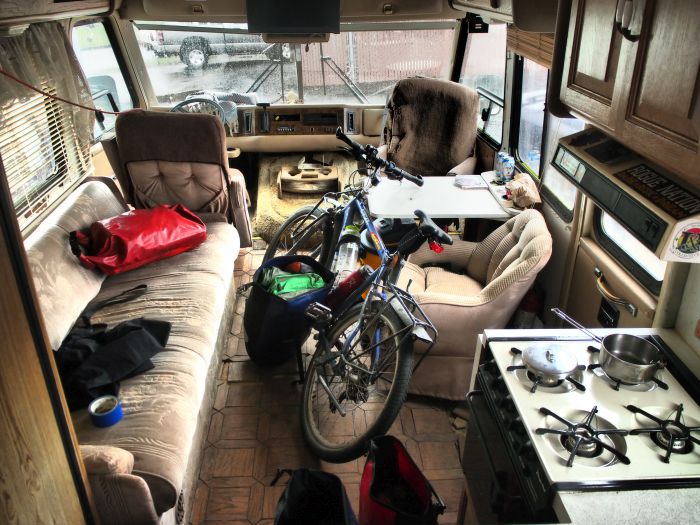
As Christopher offered me brownies, I thought nothing about it and bit pleasurably into it. But then his mate warned me immediately: “There’s marijuana in it.” “Oops”. And I spit it all out again immediately.
I finally reached the coast. The trees were full of moss and enormously large. It was enchanting.
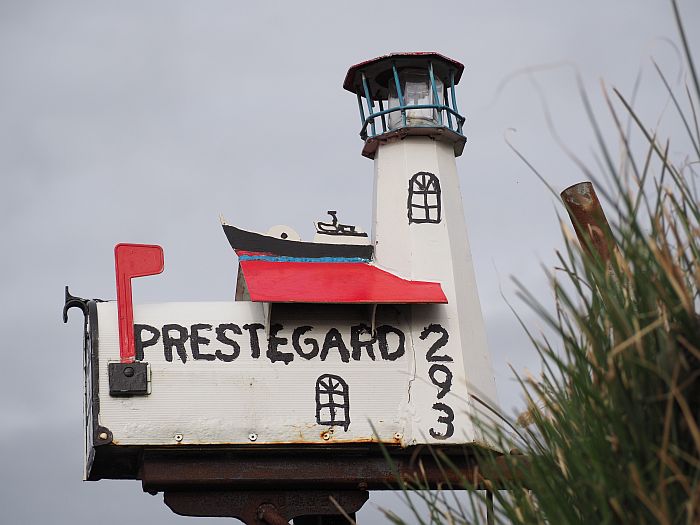
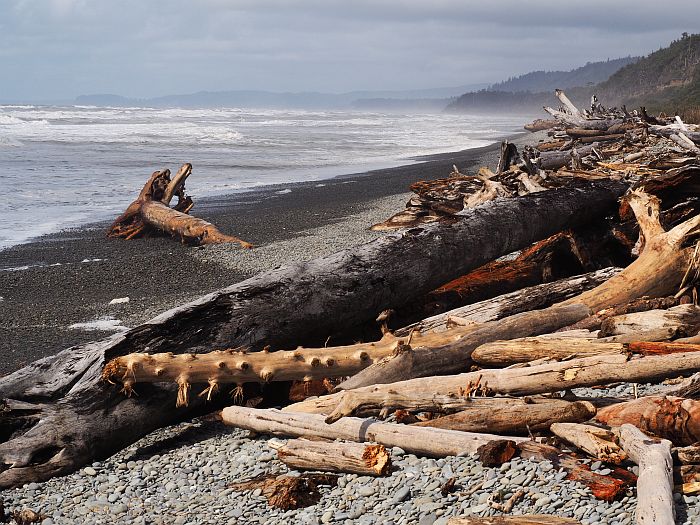
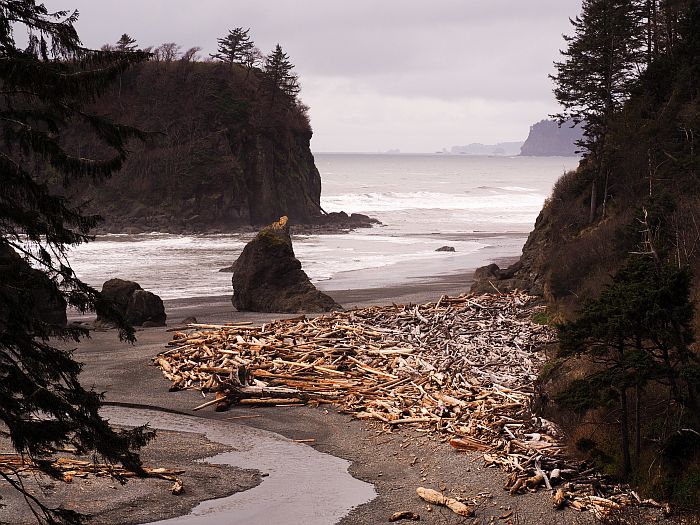
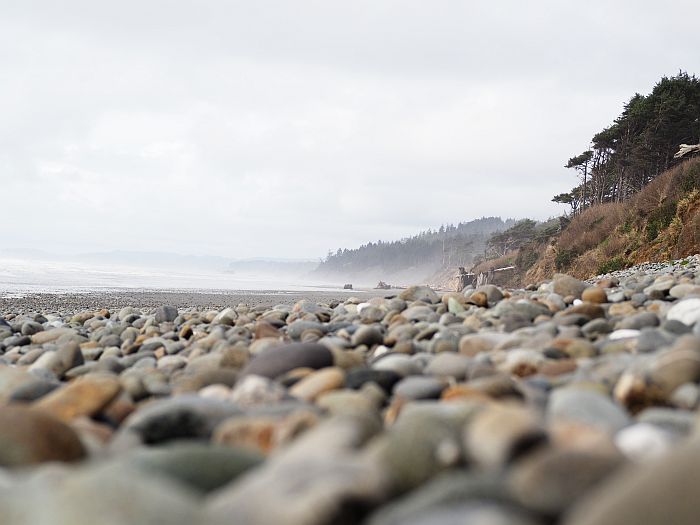
After a long day on the road, I looked in vain for a place with a roof for the night. It was pouring rain, I was soaking wet, and it had become really cold.
I came to a small village and saw a light in a doorway. The nice man there didn’t have an idea as to where I could camp, but he said I should throw my bike on his pick-up and he would come outside.
We drove to a motel, so I figured maybe he had a friend there who could accommodate me. In the end he paid them $100 so I could spend the night there and dry my clothes.
I couldn’t believe it and I told him several times that it was far too much money. “God bless you” he said, and then drove away.
One thing is certain; Americans are absolutely generous and super friendly!
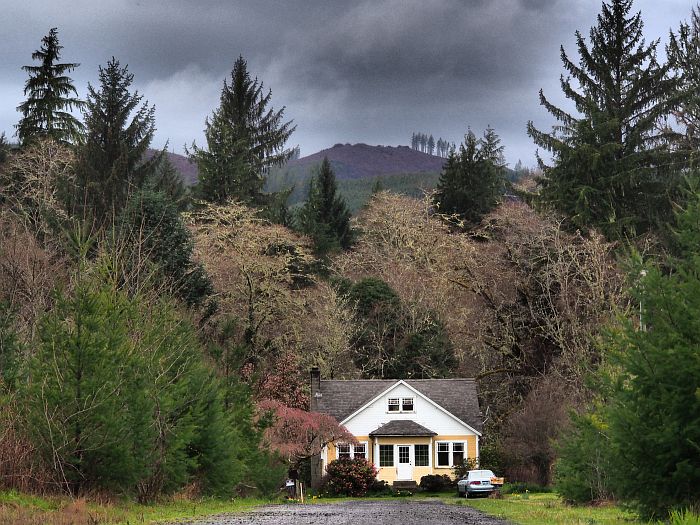
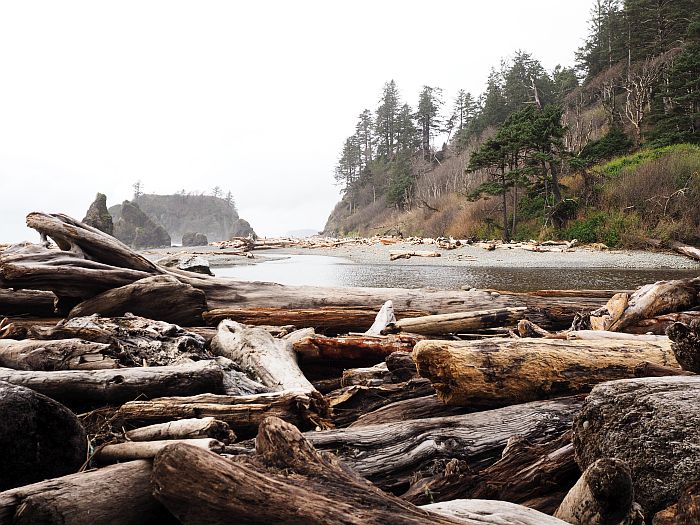
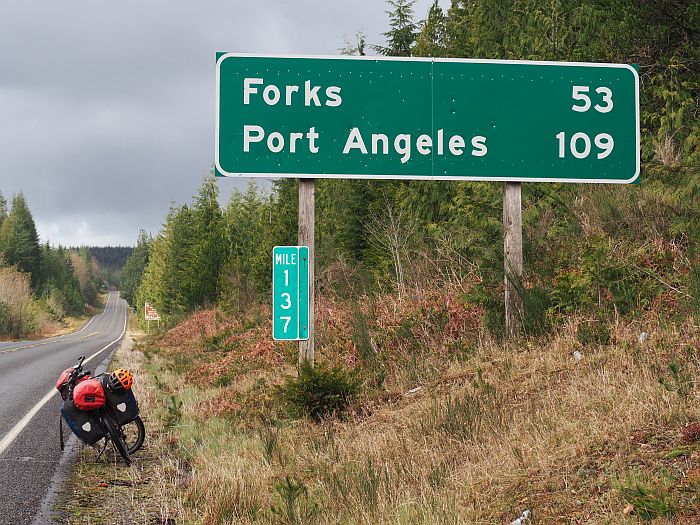
I finally arrived in Port Angeles and my time in the United States had come to an end. Before my visa ran out, I took the ferry to Victoria in Canada.
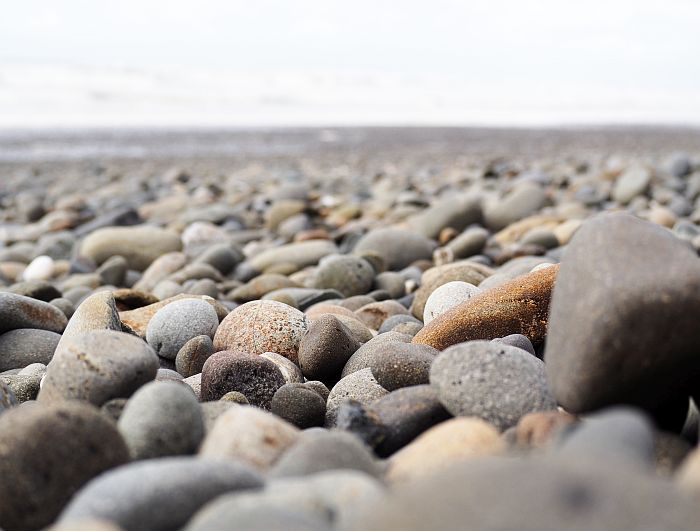
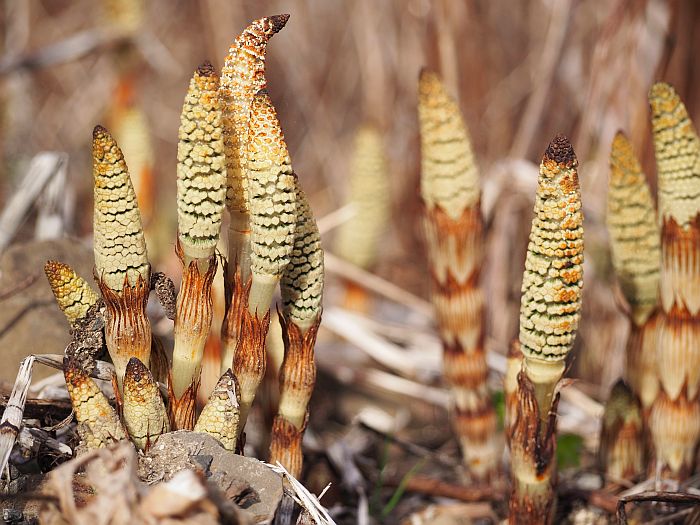
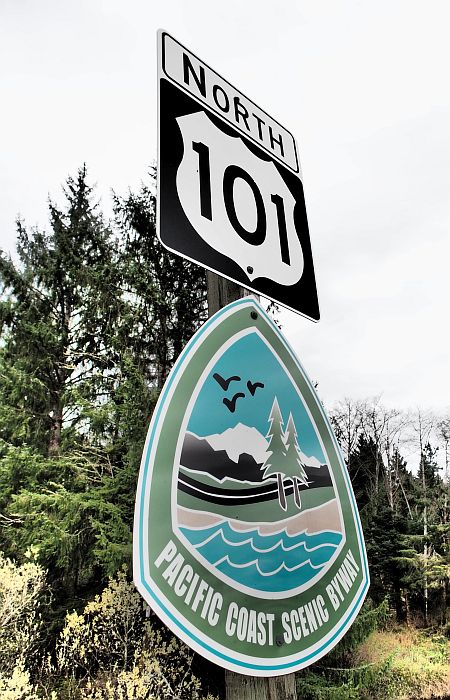
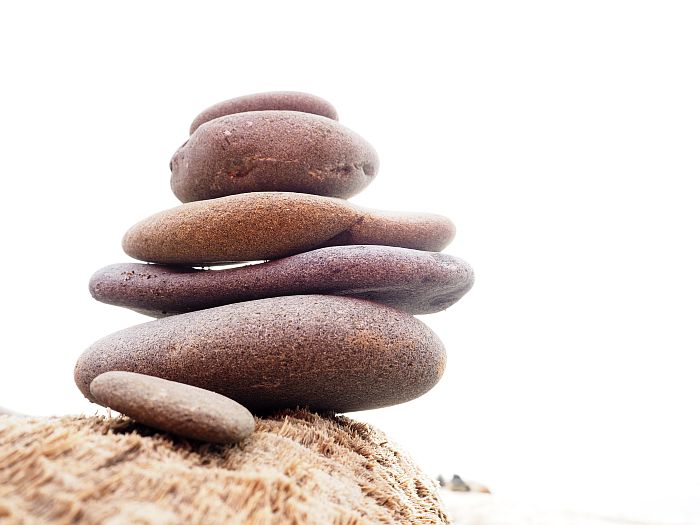
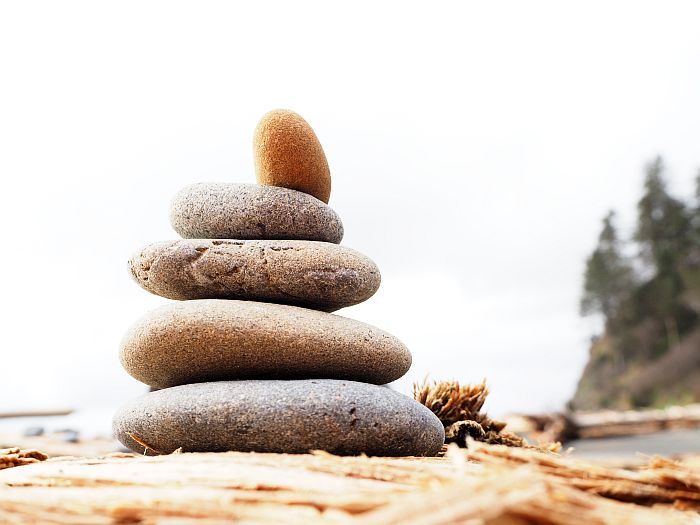
Bye Bye, America! – I hope I’ll be back again soon. Thanks for a really great time!
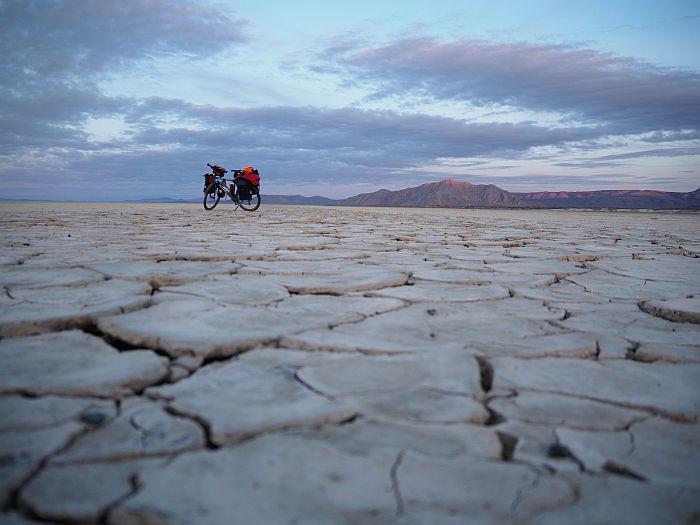
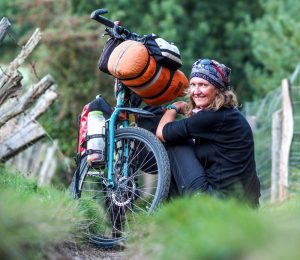

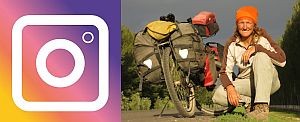
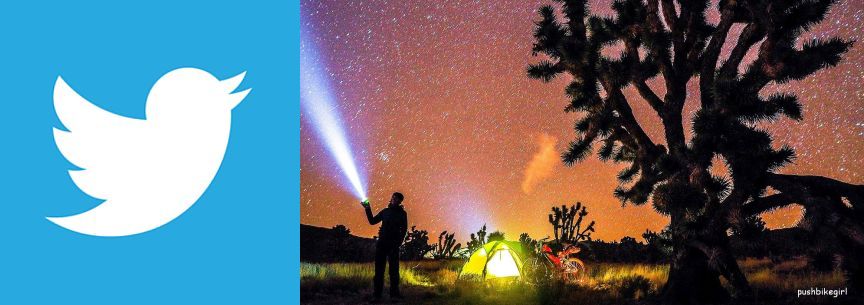

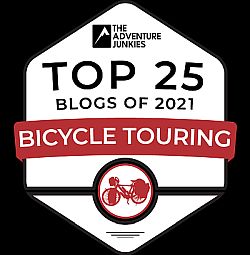
0 Comments